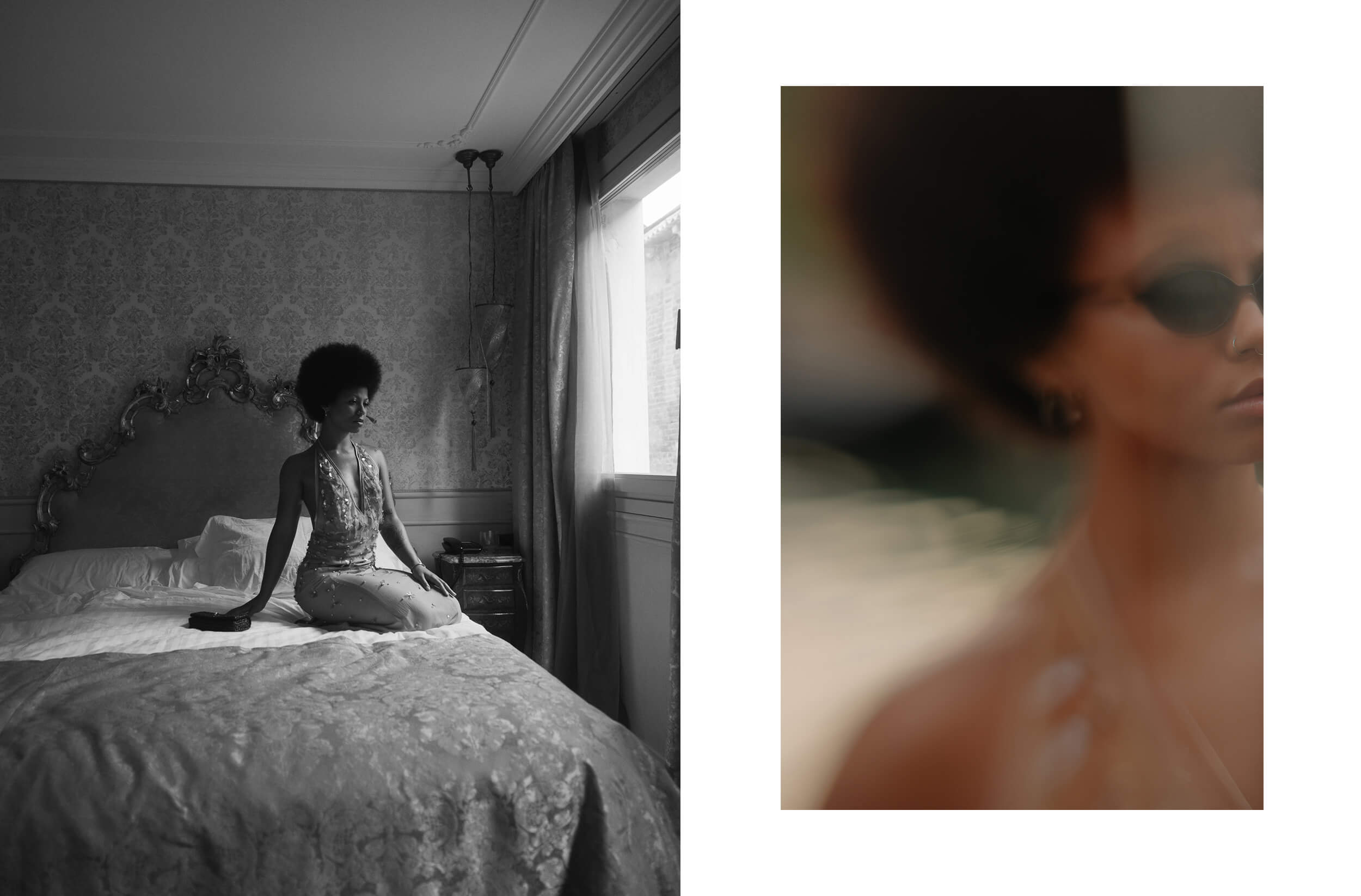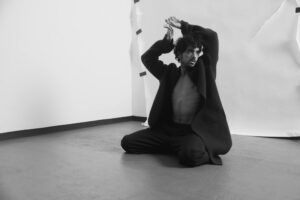At this year’s Venice Film Festival, the premiere of “Dead Man’s Wire” drew audiences into one of the most unsettling and gripping true-crime stories ever brought to the screen. Directed by Gus Van Sant, the film captures both the madness of the event and the moral ambiguities of those who witnessed it unfold. In the film, Myha’la delivers a powerful performance as Linda Page, a determined reporter navigating the tension between professional duty and personal conscience.
Fearless in her choices and magnetic on screen, Myha’la gravitates toward stories that challenge conventions and spark conversation. After stepping into the charged reality of “Dead Man’s Wire”, she also takes on a sharp, witty role in “Swiped”, the film inspired to the real-life story of the founder of Tinder and Bumble, further proving her ability to move seamlessly between worlds that interrogate identity, truth, and representation.
I had the best and most natural chat with Myha’la, discussing journalism, new worlds and safe spaces – revealing an actress and a woman who is fearless, curious, and constantly seeking stories that push her craft and her soul forward.
What is your first cinema memory?
The first one that comes to mind is when my mom and I went to a movie theater in my neighborhood – and I am lucky enough and old enough to still remember the experience of being like, “Let’s go to the theatre”, and you just show up and look at what’s playing. I remember we would look in the local paper, and there’ll be some movie titles, so we would just go, and we would do that all the time. But back to my memories, one of my favorite movie experiences is when we went to the theater to see “Blades of Glory” with Will Ferrell. My mom and I were laughing so hard throughout the movie, and we were like, “Should we just stay and watch it again?” because they were showing it back-to-back. And I think it was a school night, as well, but we watched the movie twice in a row.
That’s what I feel like movies should do because we were so sucked into that moment, we didn’t want to leave.
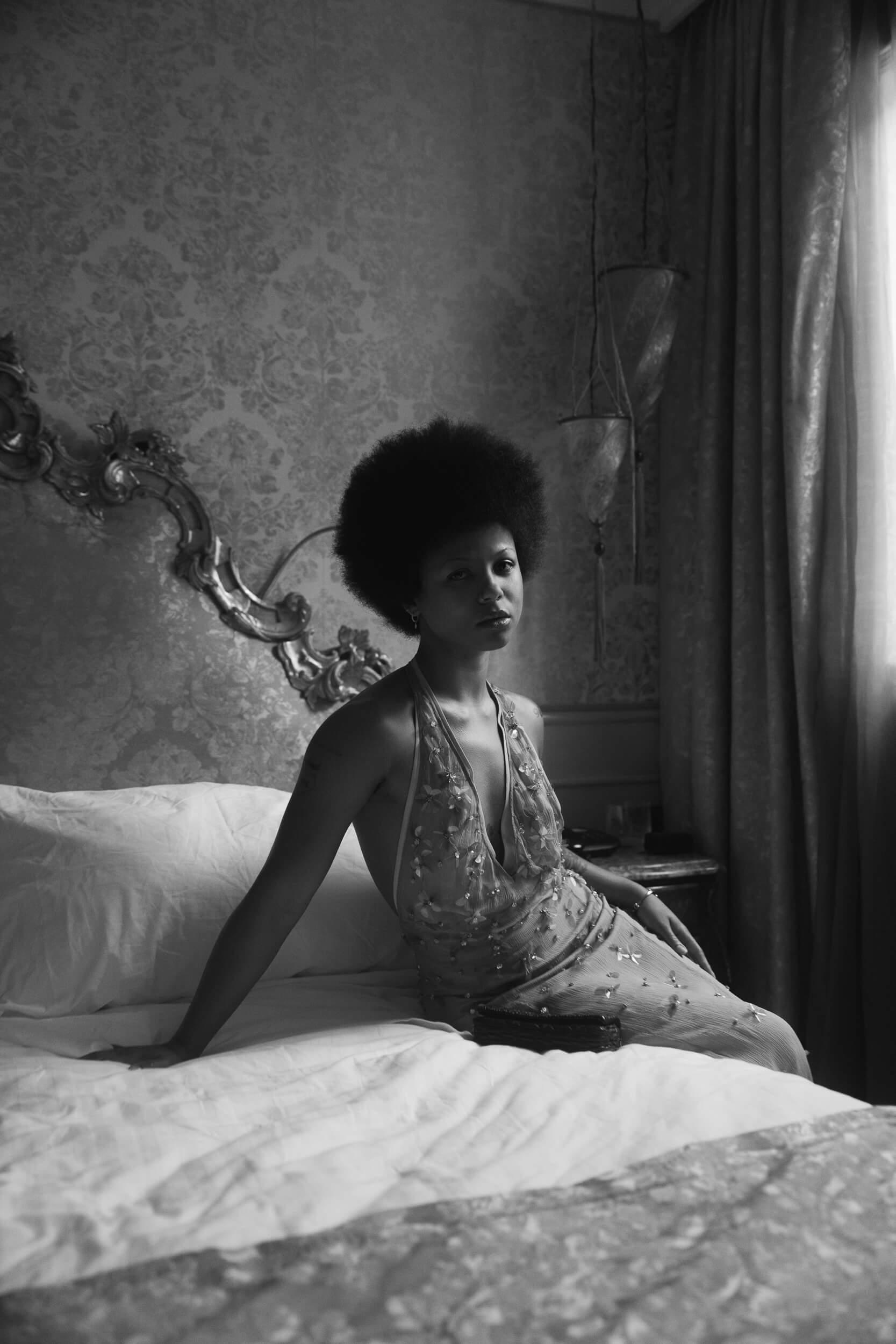
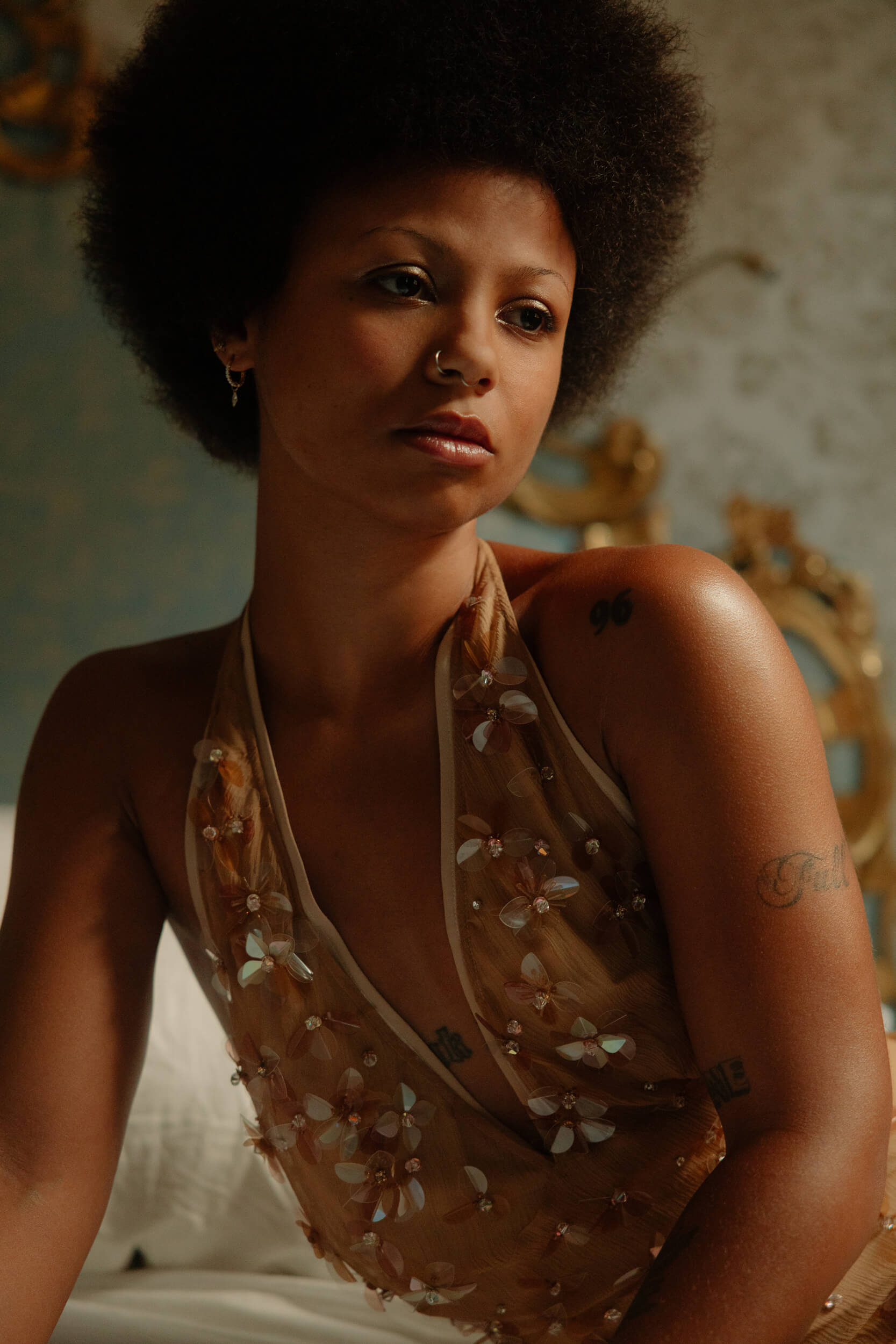
Well, a movie that did exactly what you said to me is “Dead Man’s Wire”. I watched it when it premiered in Venice, and I absolutely loved it. It was one of my favorites. What was your reaction when you first read the script? Was there a moment in the story that made you say, “Yes, I have to do this”?
First of all, I’m so glad you enjoyed the film. You know, the moment in the story that probably made me want to join the project so bad was in the first two pages of the script, when the lead character points the gun at the hostage and wraps the wire around his neck. Also, when I understood that this was a true story, and I was a bit surprised that I hadn’t heard about it because I’m kind of a crime documentary buff, I’m obsessed with real-life stuff. And this story is literally so insane – the idea that a man can death-march another man through the streets with something around his neck, and a bunch of police are just following them down the street, walking alongside them because they can’t really do anything, and commandeering a cop car… it just all seemed too crazy. So, I was excited about the story regardless, and truthfully, I probably would have done it whatever it was because it was Gus Van Sant calling.
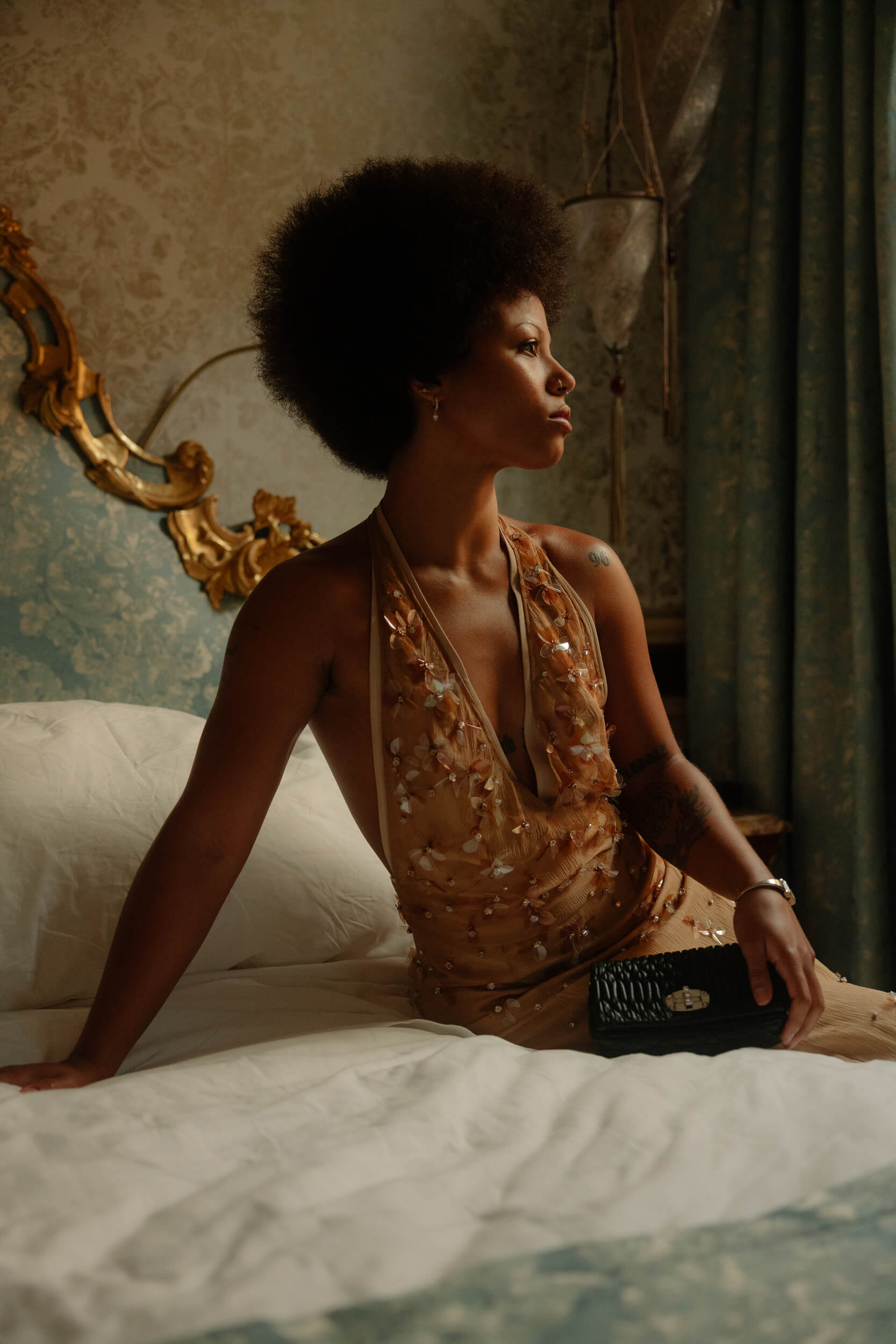
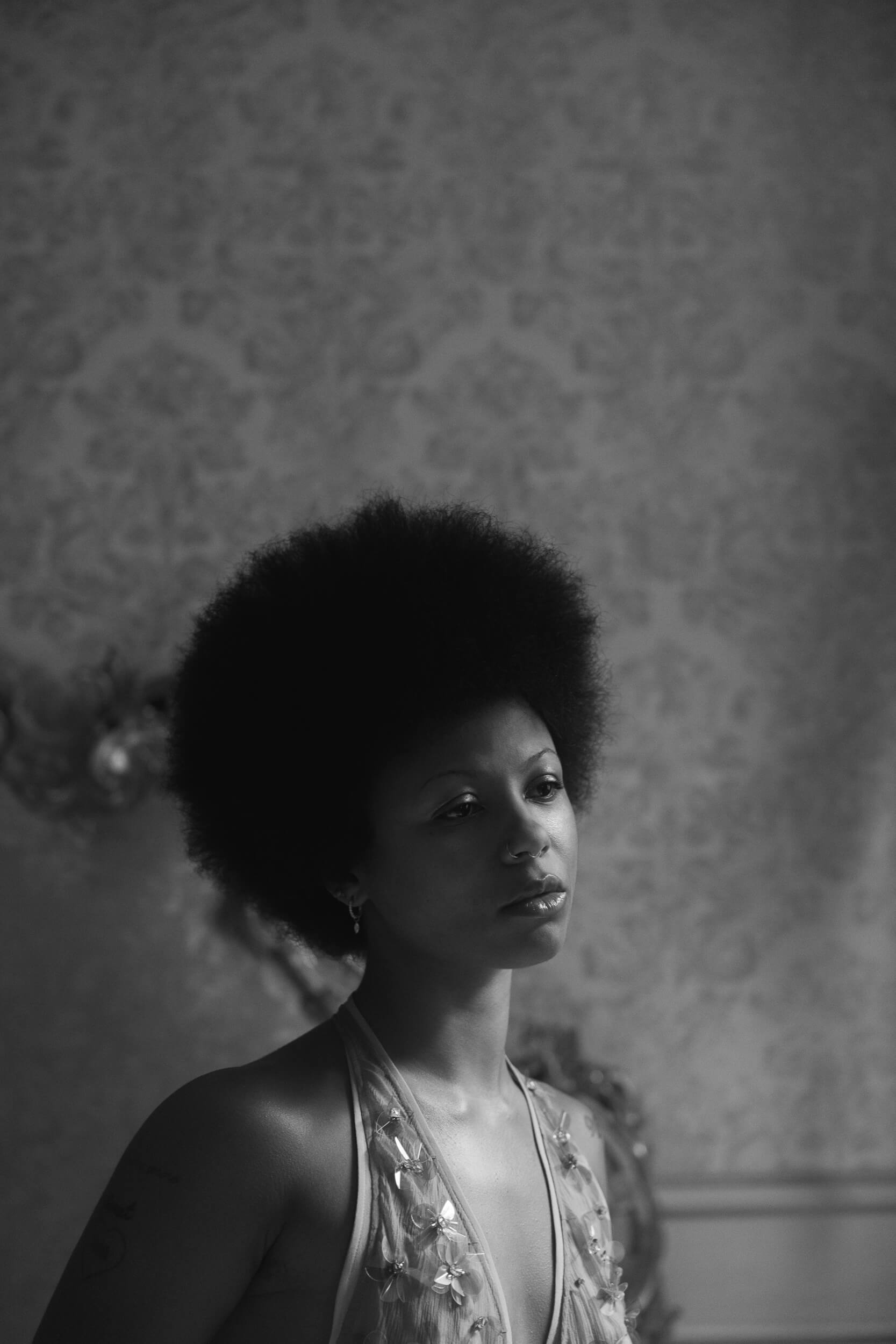
You play Linda Page, a determined reporter. How did you prepare for this role, especially balancing the ethical implications of journalism during a crisis?
First of all, I talked with Gus about who she is. She’s a reporter in the 70s, a sort of fictional character in a true story, also because I think there was only one black woman reporter on air in that time, and she looked nothing like our Linda in the movie. But Gus was like, “I’m really inspired by Angela Davis in that era, I aesthetically think she looks really cool”, I thought it was great, and so we went for that. The cool thing about Gus in general is that his idea was: we’re telling a real story and we’re also making a movie. So, he added his own little flavor to the real events shown in a documentary on this case, for example. You know, in the documentary, Tony Kiritsis is wearing a pretty iconic green shirt, but in the film, Bill [Skarsgård] is not wearing any green shirt because Gus was like, “I want him in Hawaiian print”. So, what I appreciate about Gus is that he’s always up to adding some creativity.
Back on Linda, as we don’t know about specifically a black woman reporter in that situation, I think Gus was really just interested in allowing him and myself to be creative with the part, also infusing her with a little more meat in the story. In fact, she’s the first one on the crime scene getting live coverage, so she’s using this as an opportunity, as well, to boost her own career, she’s the one with the information. So, I think she’s not so much thinking about the ethical implications of the reporting at the time, just because it’s all way too shocking and way too exciting. For her, it’s all about being there, being present, capturing the moment. I think the biggest challenge was just bringing to life the feeling of anticipation, potential violence and complete shock and awe.
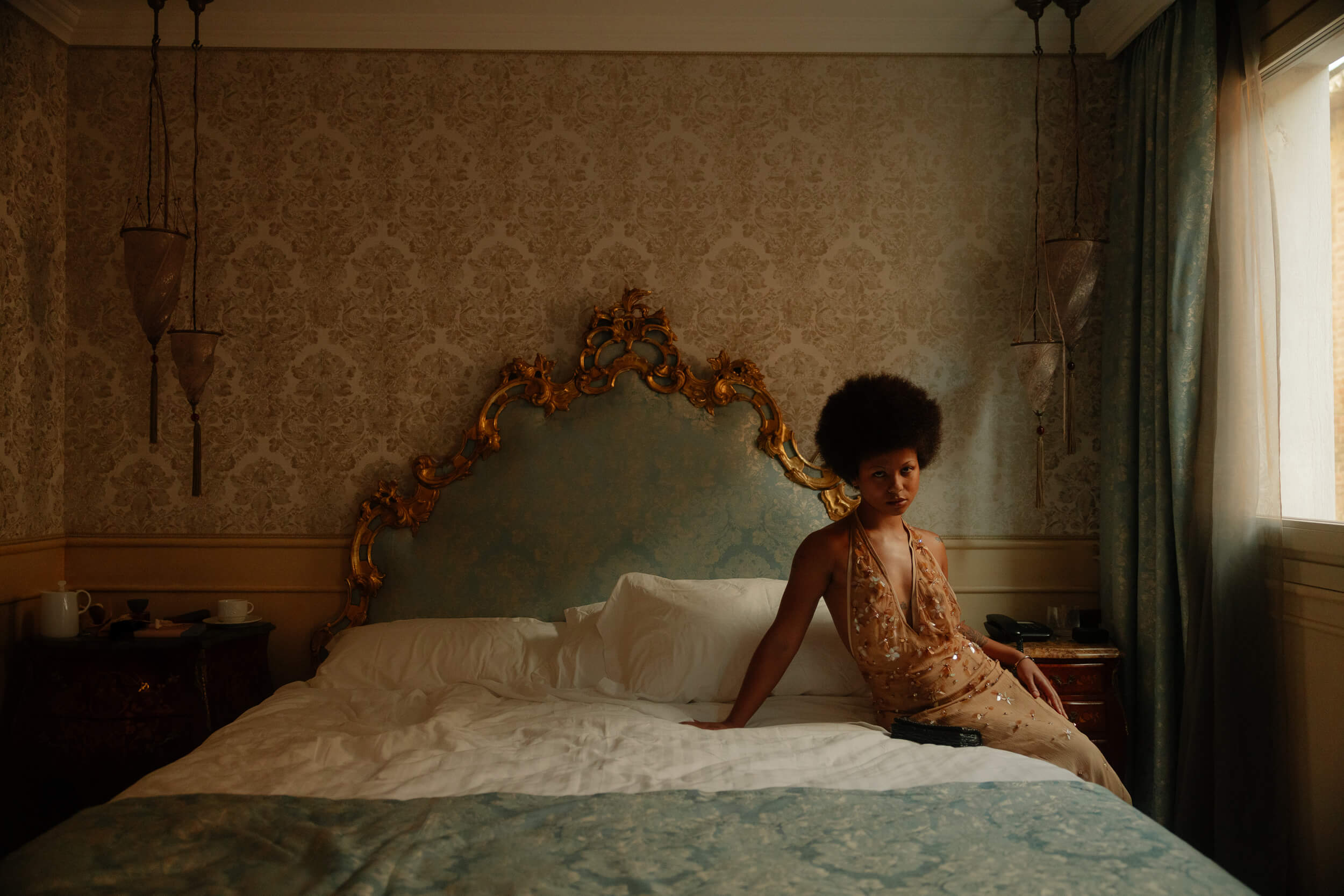
“What I appreciate about Gus is that he’s always up to adding some creativity.”
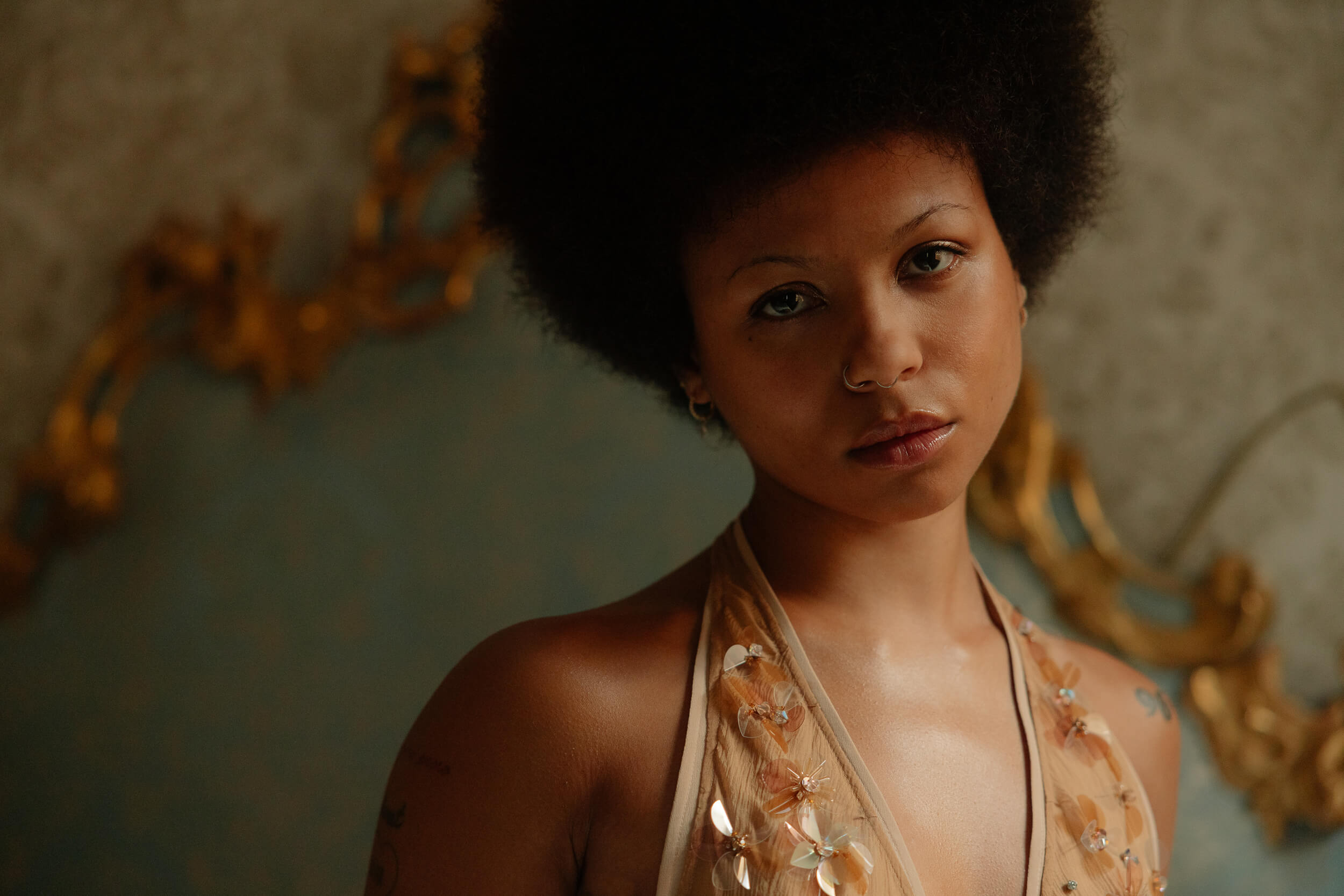
So, in this story the media plays a big role, both as observer and participant. How do you think the film reflects the responsibility (and danger) of reporting under pressure or in delicate circumstances?
That’s a great question. I think trying to answer that question is a good reason why I would never be a reporter [laughs].
You know how they say, when you go into nature, you’re supposed to leave it exactly how you found it. I’m always like trying to save a bee, I’m always trying to interfere to protect life because that’s just what my heart wants me to do, even if that’s not what you’re supposed to do, so I don’t know. And I don’t necessarily know that the film is trying to answer that question either. I think the beauty of great filmmaking is that it gives you a picture of something happening, and then it allows the audience to answer this question. It gives us all the opportunity to have the conversation.
I think probably the best reporting is honest, not biased, and respectful, but even as I’m saying that, sometimes I’m like, “Yeah, there’s some stuff that morally you should just report with honest truth”. That’s the question, right? That we have the beauty of the opportunity to have this kind of conversation.
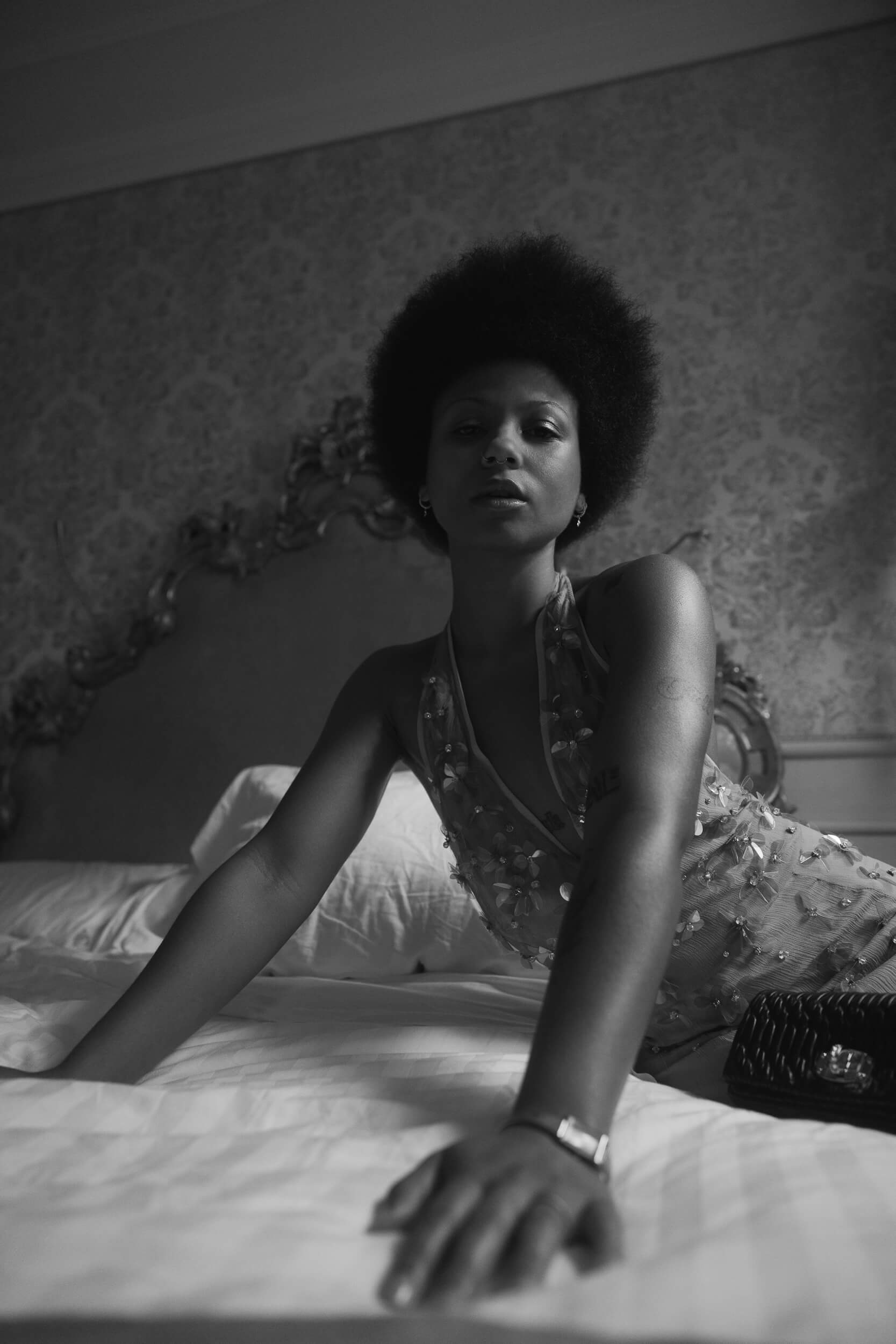
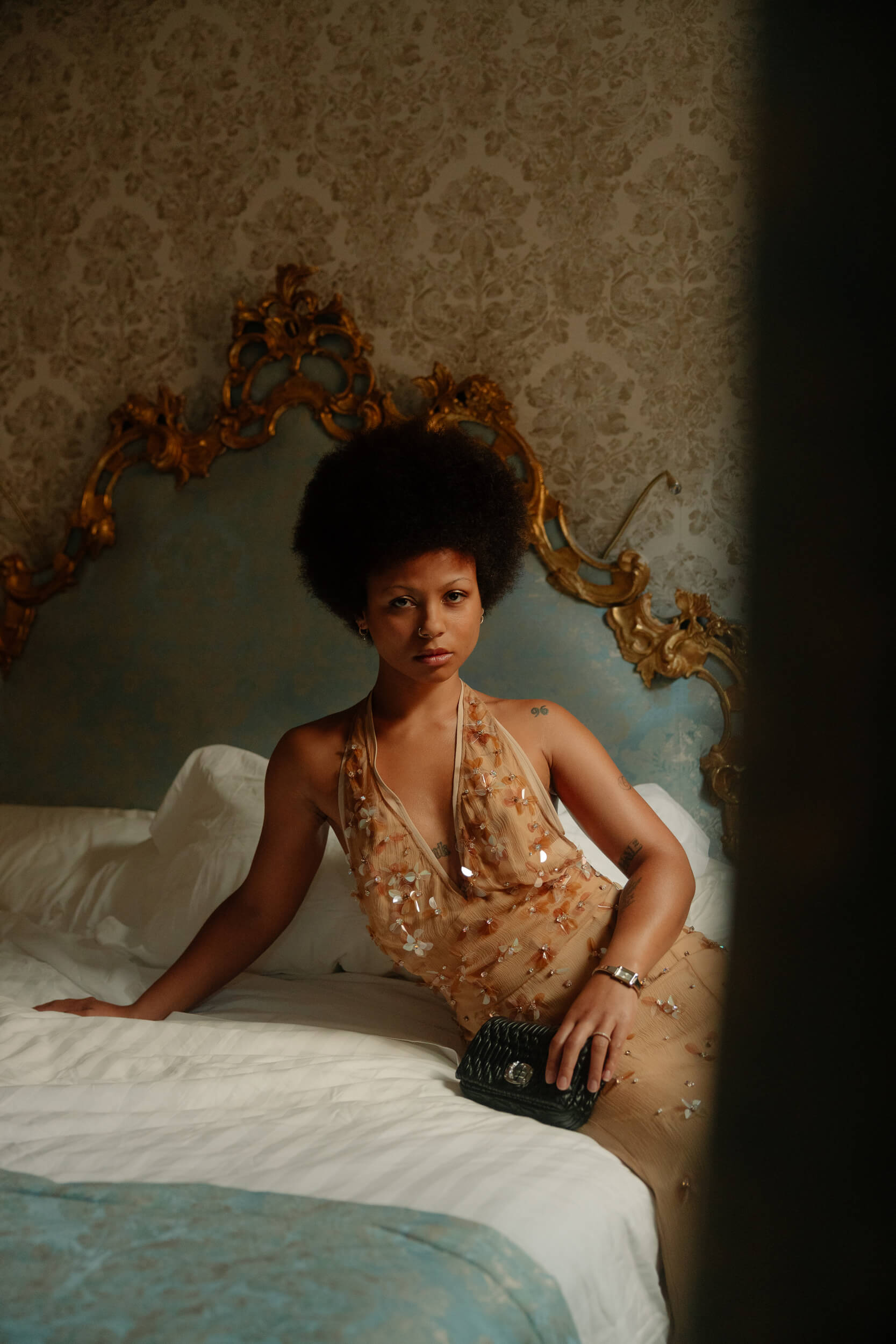
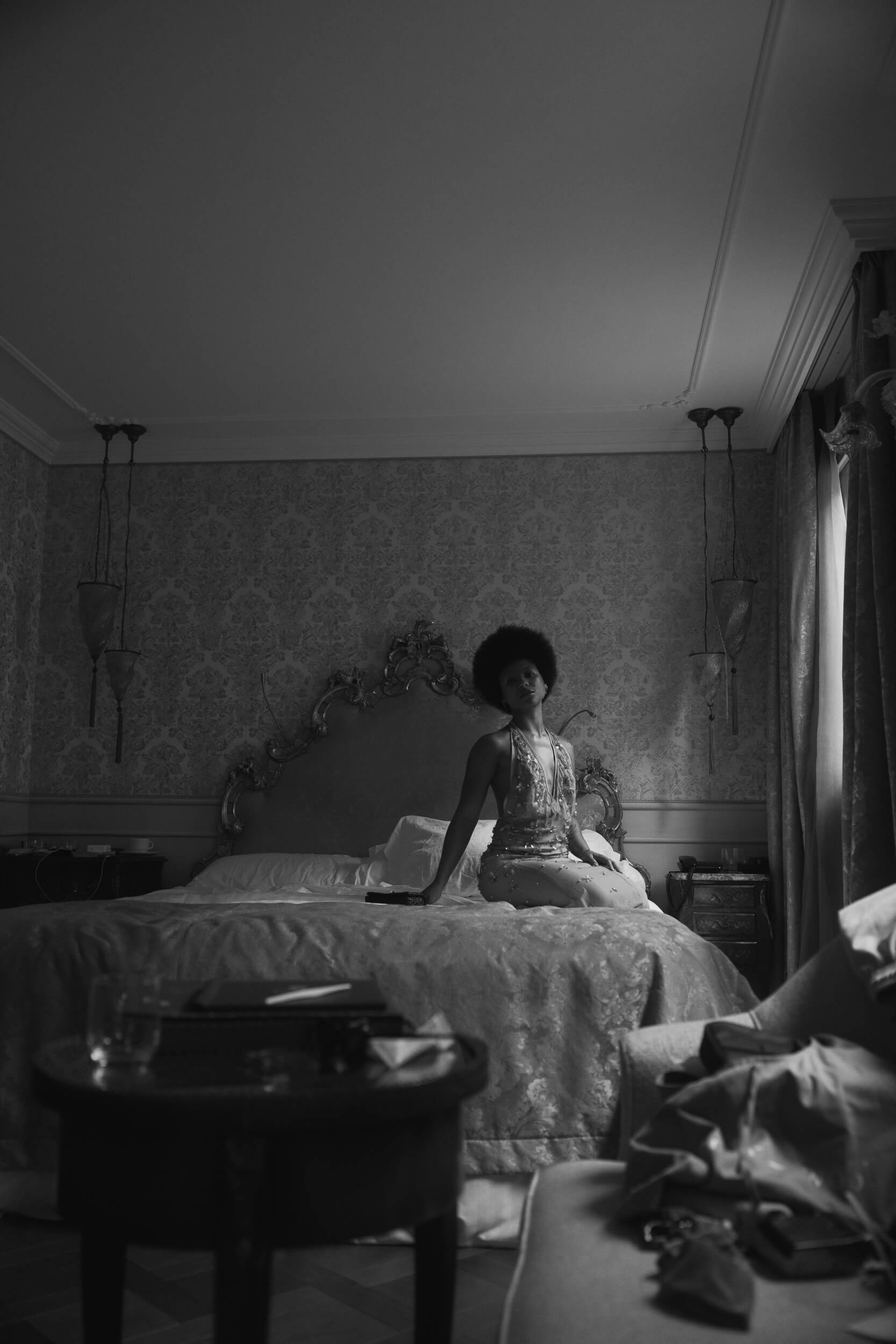
So, after filming, did your perspective on journalism or crisis reporting change? Did you learn something new that you’ll carry with you in your work?
I think the thing that stands out the most is that we, as consumers, don’t understand that those reporters, those camera people, the sound folks, are also in the crisis situation, literally right inside of it. And they’re also putting themselves in some sort of danger, putting themselves at risk.
Two scenes where I was really recognizing that are when we first arrive to the scene and Tony is outside, about to get the cop car, and he slips and we’re all like, “Oh, we’re so close”, and he has that gun and we think, “Even if I don’t get hit, I still have to witness whatever might happen”, which is traumatizing. I think recognizing I’m in imminent danger is an interesting thing. And then again, in the conference at the very end, when Tony is completely psychotic and trying to give a report, but he’s also got the gun pointed straight towards me, where I was situated in the scene. Obviously, Dacre [Montgomery] was stood between us, but I was very aware of his volatility and holding out a microphone, but also understanding, “I can’t go anywhere, I’m stuck in this room”. I think journalists should be protected at all costs because they’re doing their job, they’re doing God’s work.
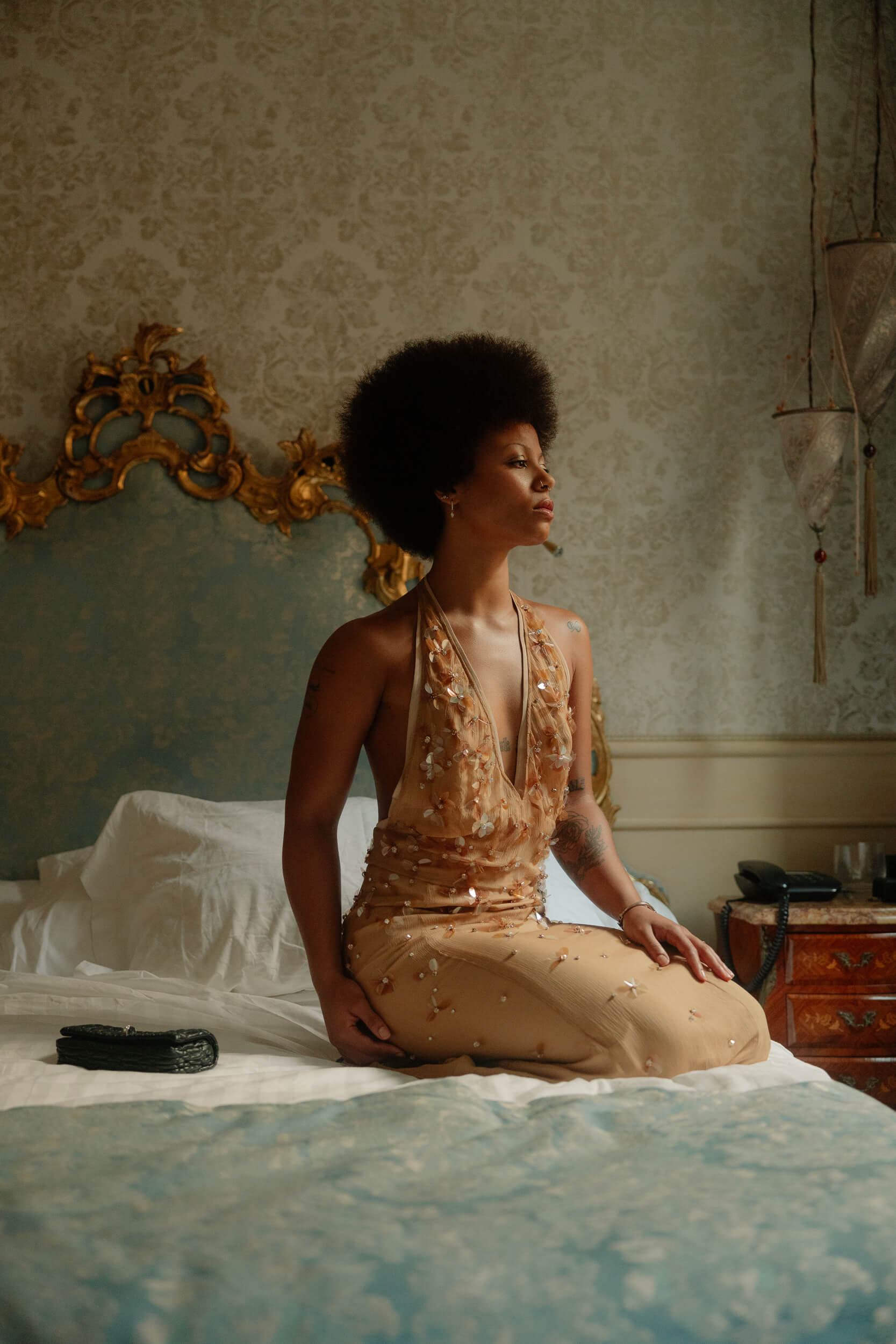
“I think journalists should be protected at all costs because they’re doing their job, they’re doing God’s work.”
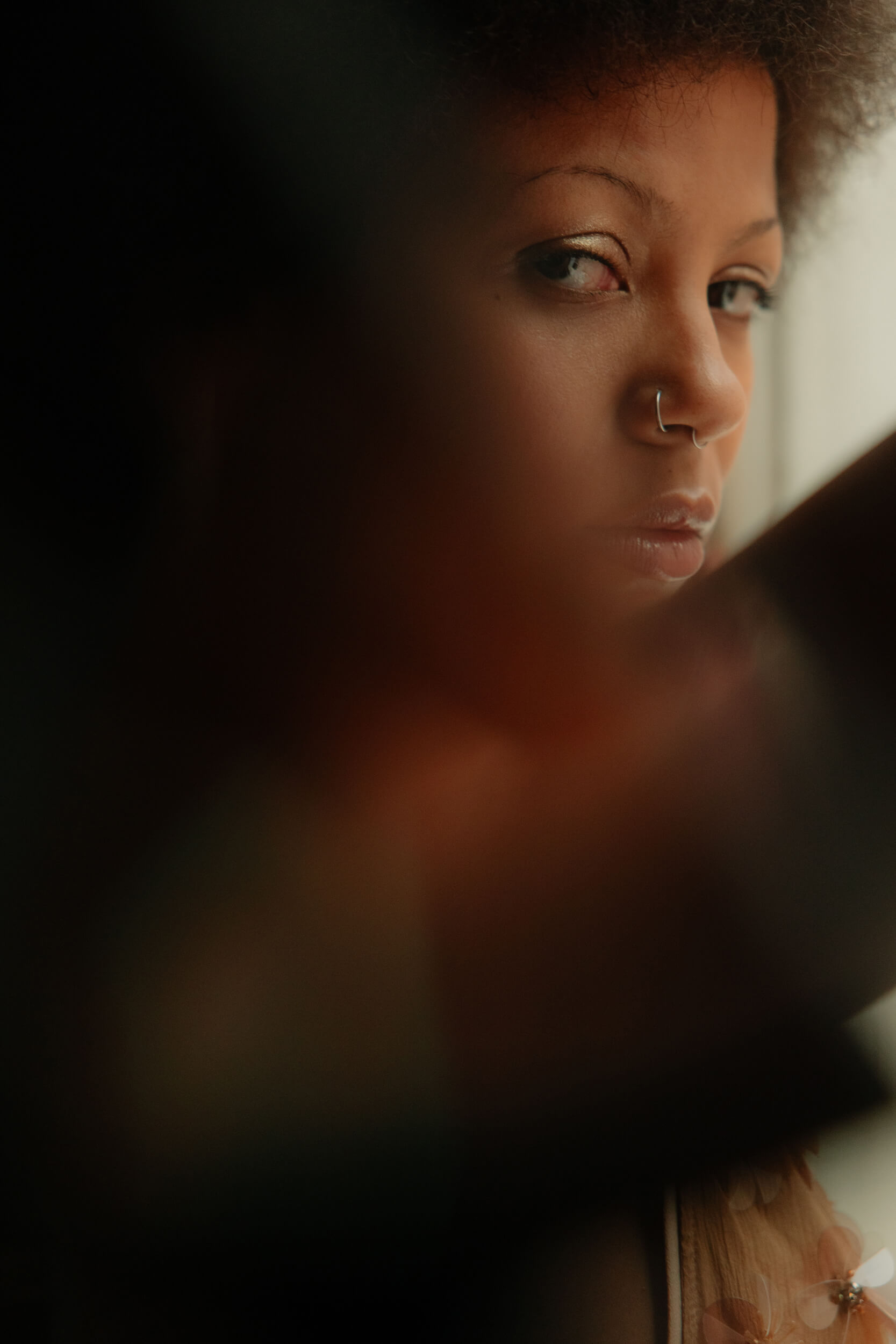
And after this project, did you discover anything new about yourself?
What keeps me amazed and engaged in this job, I think, aside from the fact that it’s fun, is that I’m always in a pursuit of some kind of truth, I’m always in a pursuit of humanity. In this film, Bill is playing a guy that some people think is violent and unjustified, but the beauty about Bill’s performance is that he humanizes Tony in a way that makes us sympathetic to him. You can appreciate why he feels his way – especially post Luigi [Mangione], we’re all like, “Power to the people!”. I think what makes a performance like Bill’s and a character like that so brilliant is to find a way to humanize him: you have to connect, he’s the lead of the movie, otherwise no one is going to want to watch it! Also with my character, there’s an internal battle where she’s like, “Do I sympathize with him? Do I agree with him? How do I feel about this?”. This affects the way that you respond. In the last scene, Bill made a choice that his character would know the reporter’s name because the press made him famous after all, and his story made her famous in a way, it built her career, so Linda and him had a “relationship” of some sort.
All of this to say that what brings me back to this work is the constant pursuit of humanity and truth, and I think it softens the heart – if you can find a way to, at the very least, understand a person, then you can empathize, put yourself in that shoes, and it softens you. I think the world needs more of that.
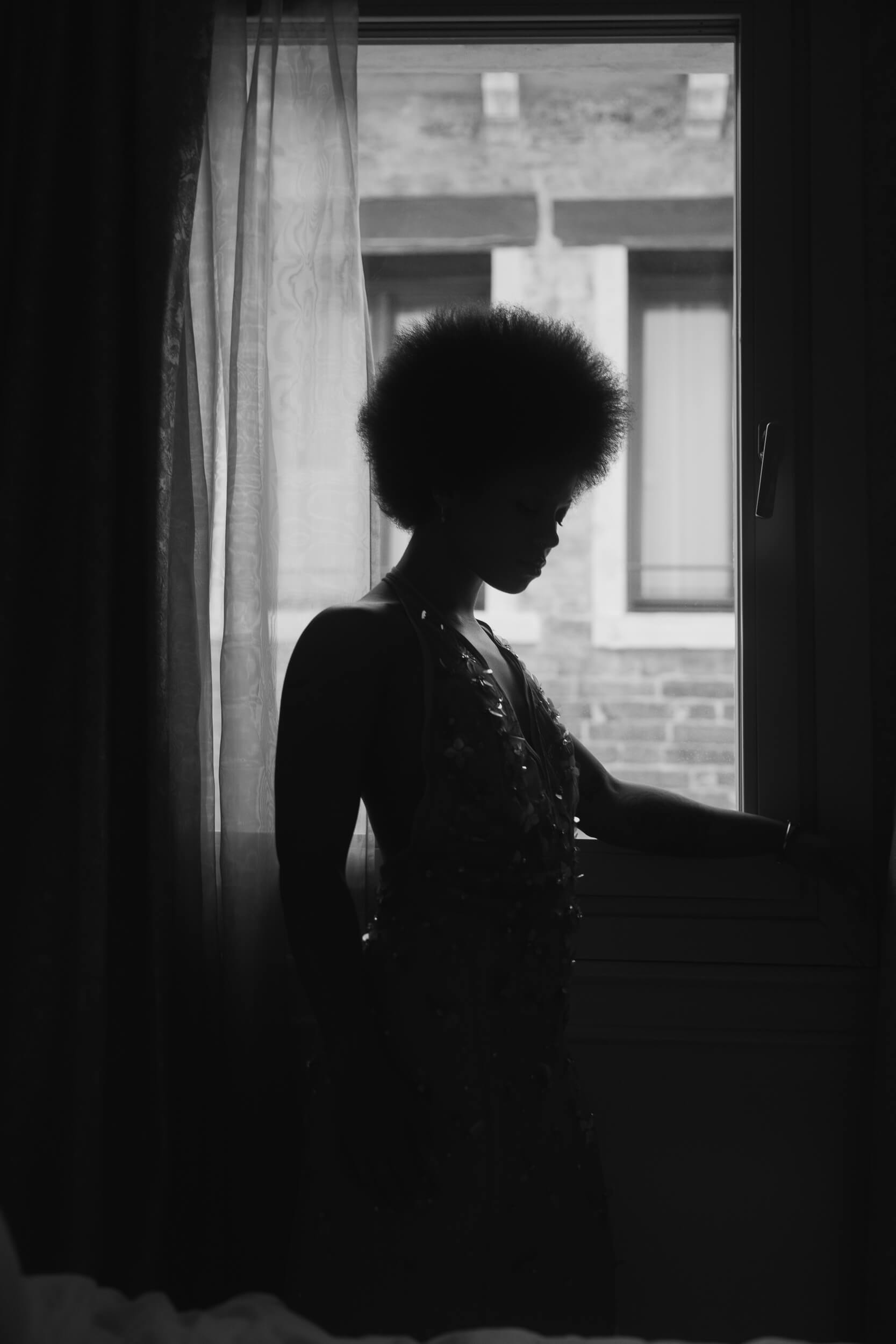
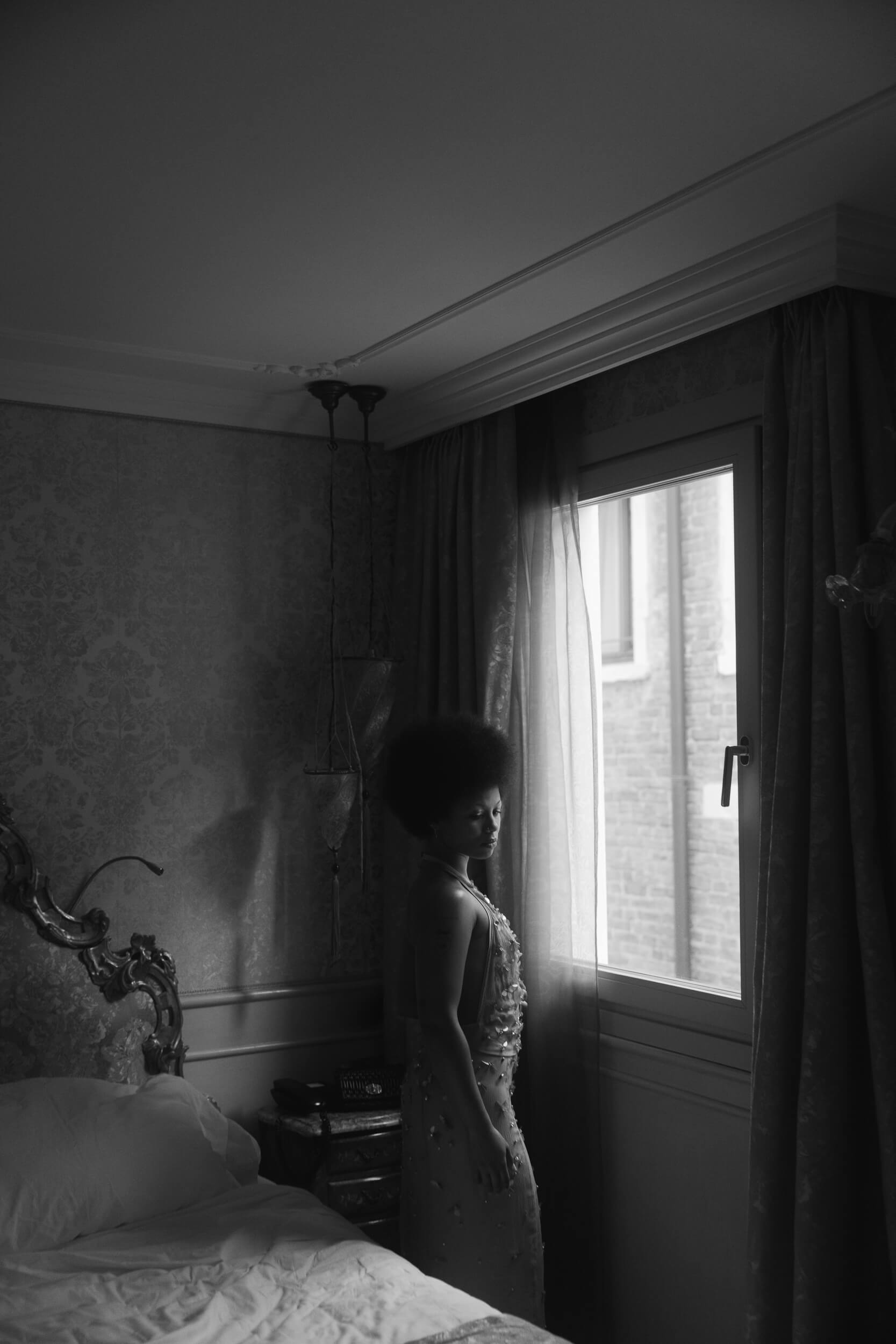
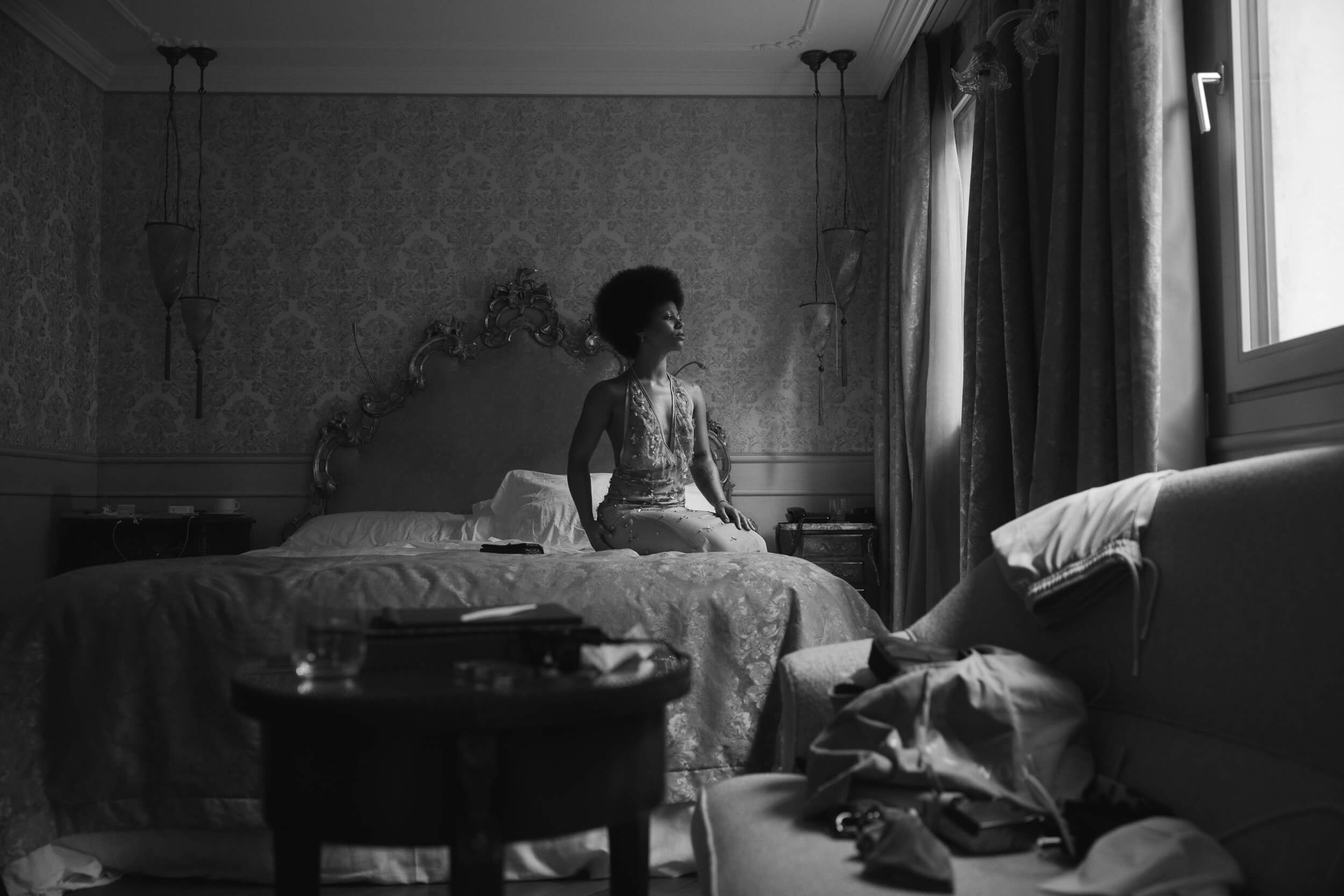
Speaking of “Swiped”, in this film based on the life of the founder of Tinder and Bumble, you play Tisha, a sharp, witty black woman in tech. What drew you to this role?
The call for this movie was the first call that I got post Covid and the actors’ strike, so more than anything else I was really grateful that somebody wanted to give me a job and that I was going to be back on a set. Again, it was another story that I hadn’t heard about.
Yeah, it’s so strange that no one really knows about the life story of the founder of the most popular dating apps in the world, who’s probably among the most influential people right now.
Totally! Probably that has the most to do with the fact that she’s not allowed to talk about her job and, of course, the people around her, as well. So, I was really excited to learn about how Whitney Wolfe was involved in Tinder and how she came to make Bumble. Again, my character’s fictional and an imagination of who might be around her, but I also thought it was cool that the director wanted to put a black woman in the story. I think it’s cool to center that voice in that time because I don’t know if there was a lot of that in that era.
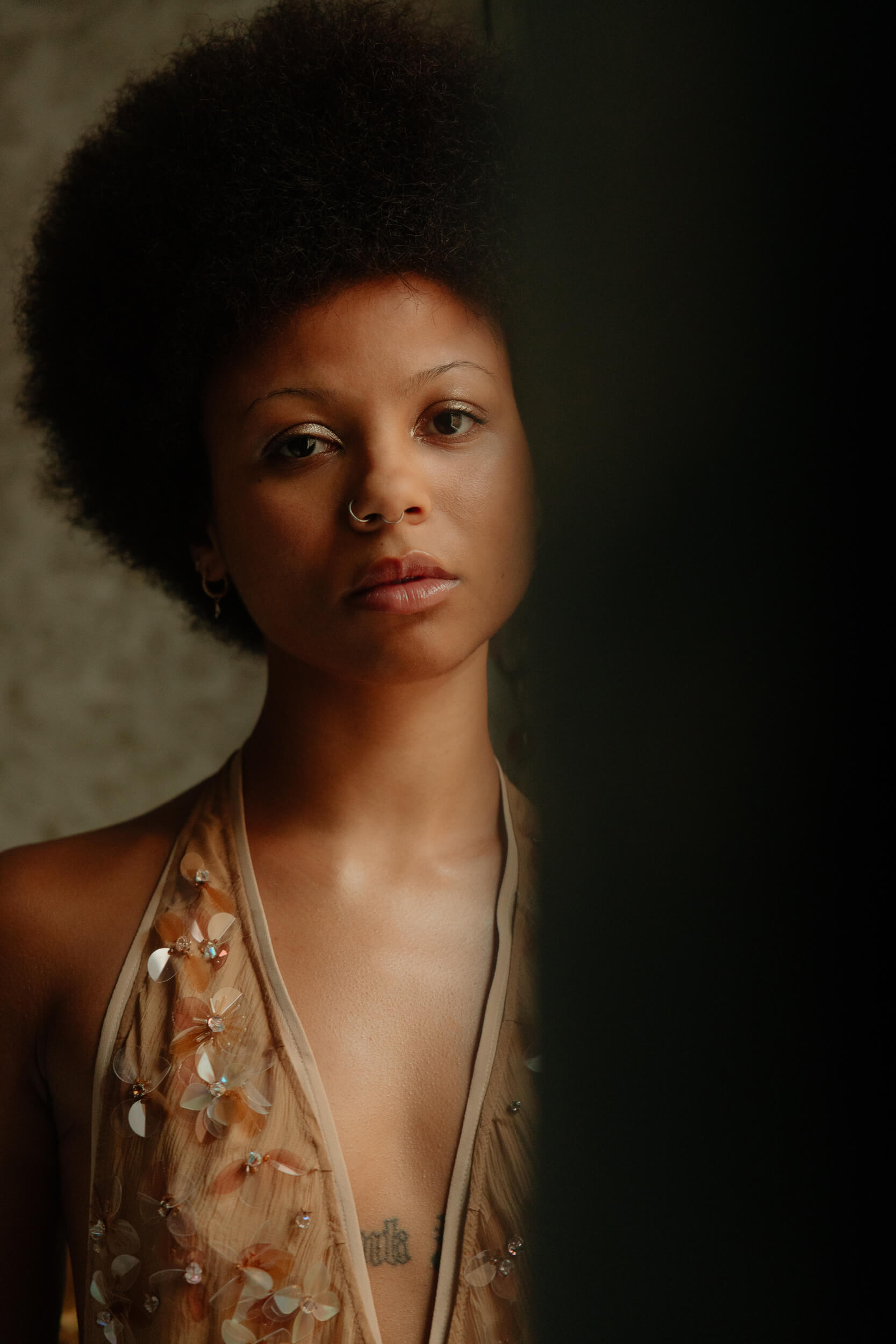
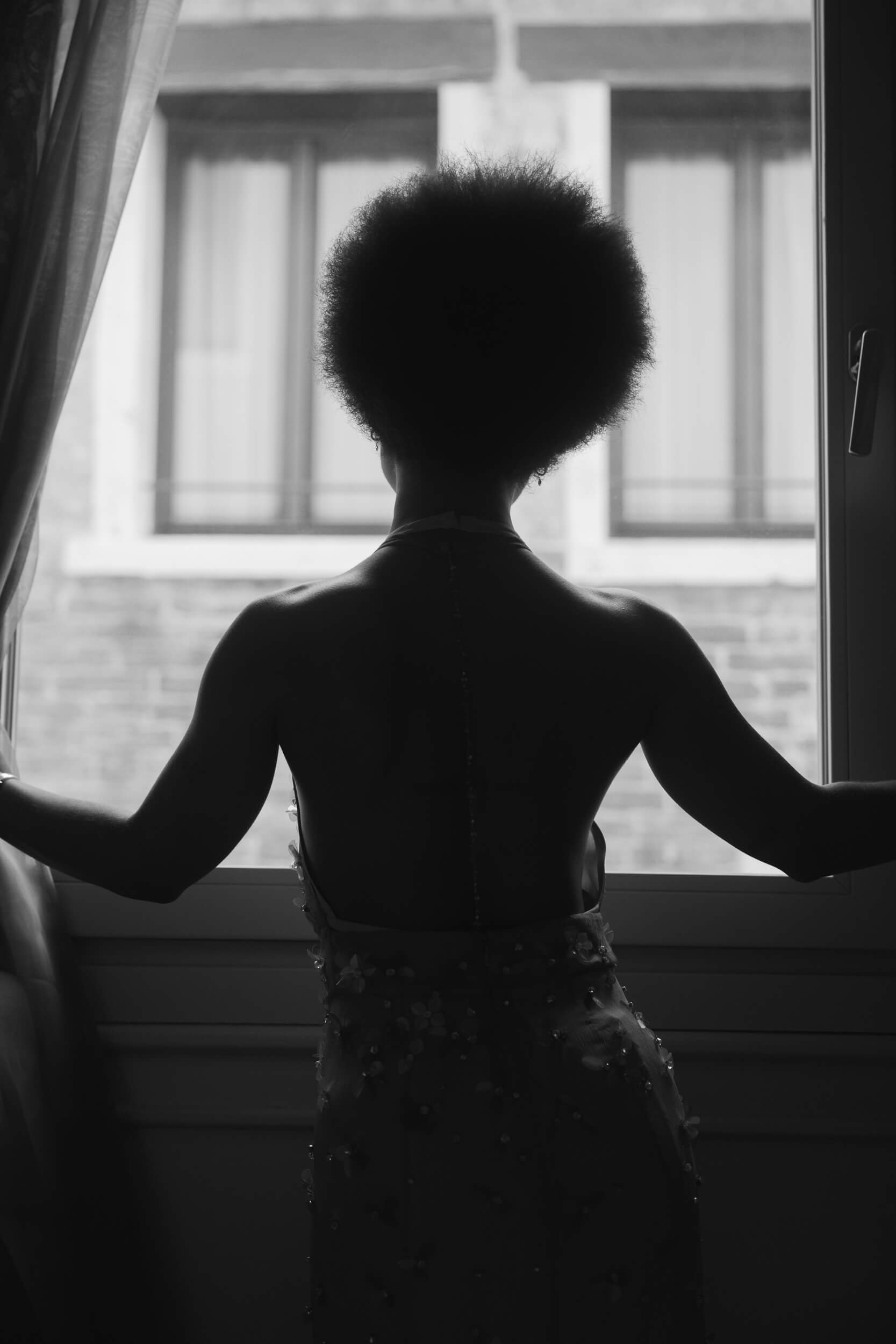
What conversations did you hope to spark by bringing this story to life?
I think it’s cool to know that a woman was behind the most famous and probably powerful apps in the dating space. If the audience is having a conversation at all, then I think our goal’s been met.
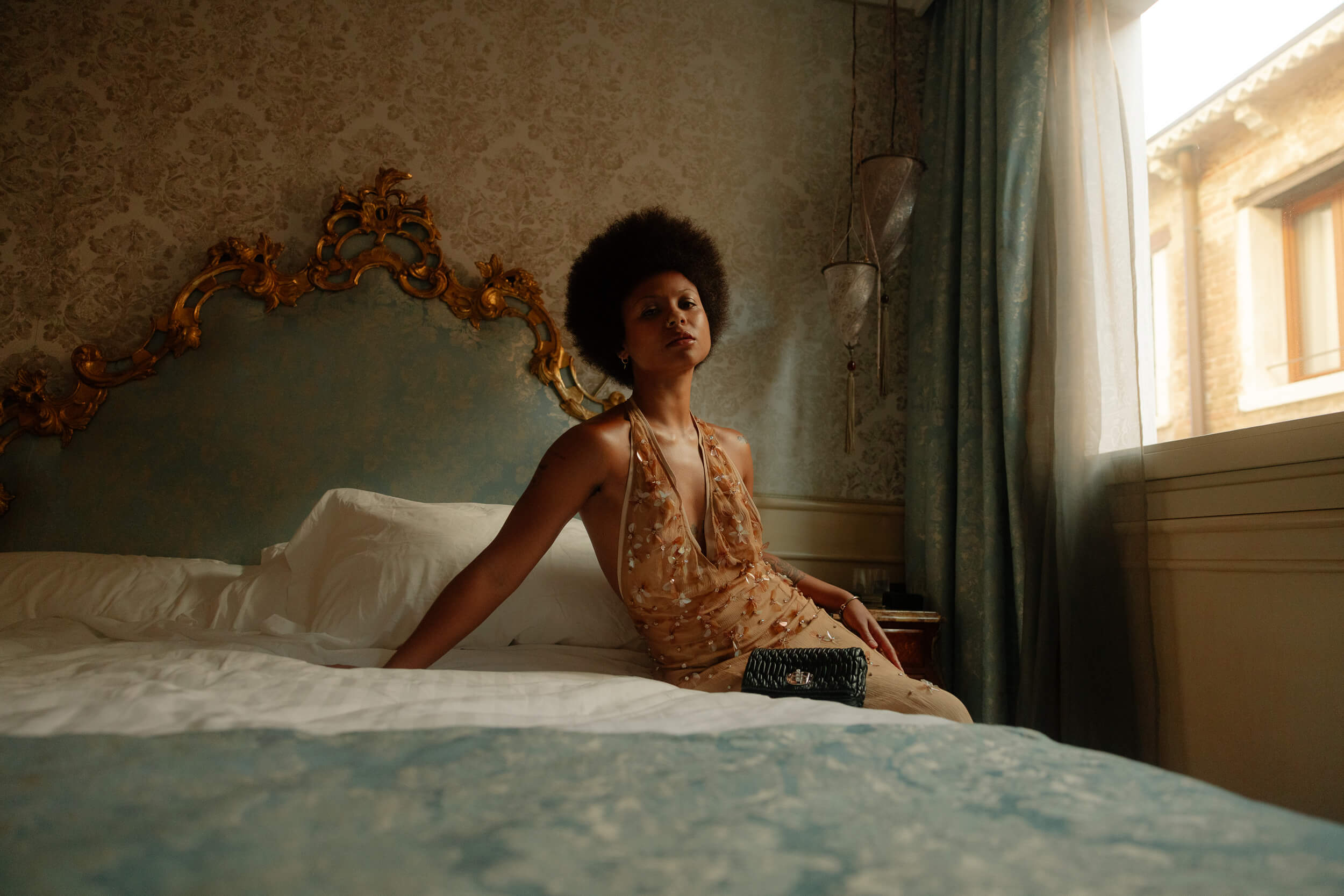
You were part of a panel at Miu Miu Women’s Tales during the Venice Film Festival, where female creativity, fashion, and storytelling intersect. What does participating in a project like this mean to you, especially as someone who works between film, identity, and representation?
For anyone, it is so hard to get a film made, first of all. It’s really expensive, nobody wants to trust you, and women have a hard time especially. So, I’m so grateful to be invited to be in a space where a big, influential brand with opportunity, access, money, wants to put that kind of support behind women filmmakers. Because to have a film made on that scale, with that platform, with the power of lineage that Miu Miu has is huge. That’s the kind of support that we all would like to have and would like to give. So, I’m really honored to get to stand behind that to say, “I, too, appreciate and support this endeavor”, to put tactical support behind women filmmakers because it’s still so necessary.
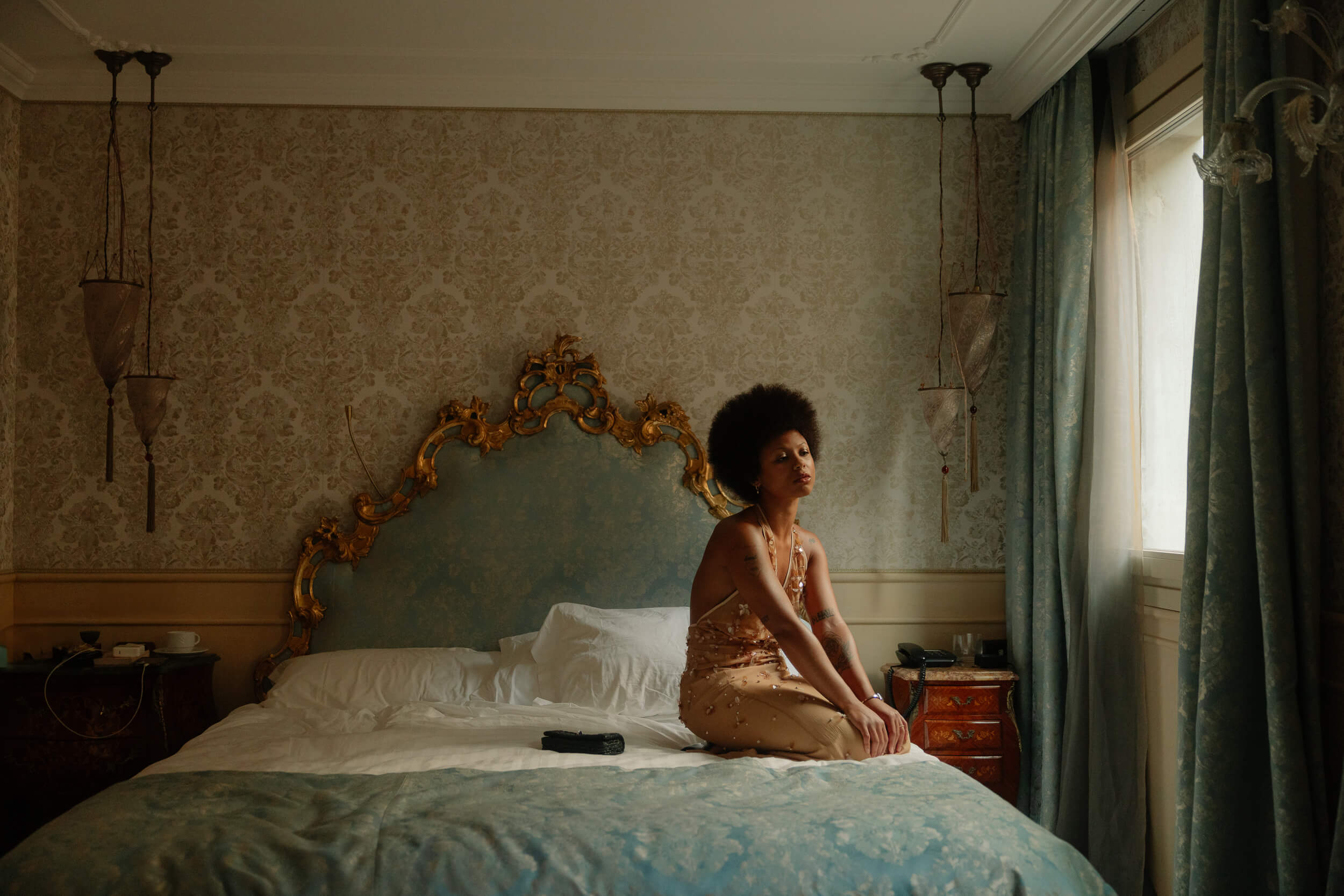
“I’m really honored to get to stand behind that to say, ‘I, too, appreciate and support this endeavor’, to put tactical support behind women filmmakers because it’s still so necessary.”
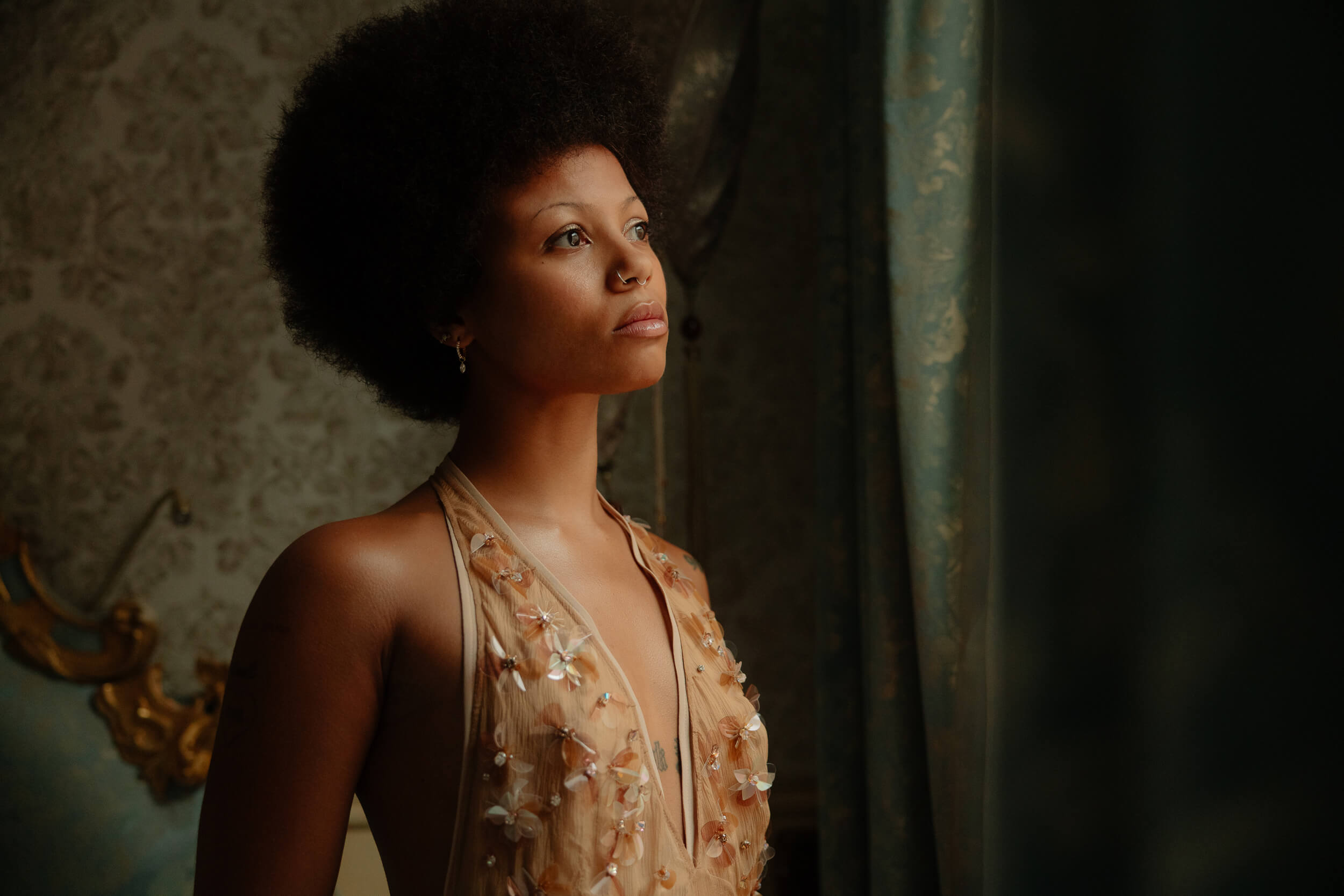
Since the project involves fashion as part of the storytelling, how do you see costume, styling, and the visual identity of characters influencing the way audiences understand roles and narrations, from your point of view?
It’s huge. You can get inside a character’s mind, but everything changes once you put on a costume, once you put a wig on. Costumes change the way your body moves in space – all the aesthetic stuff is so important from my perspective, and also for the audience, of course.
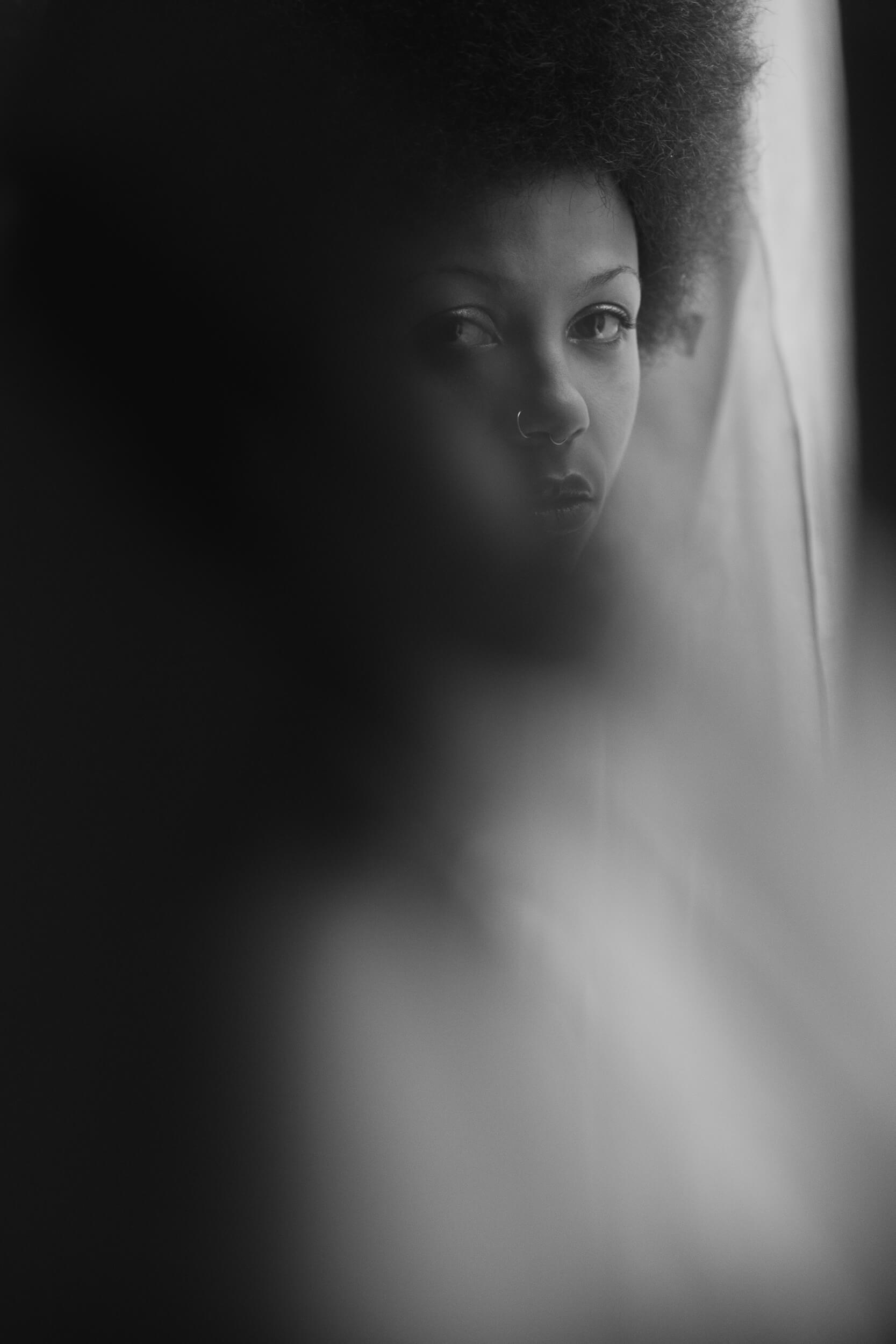
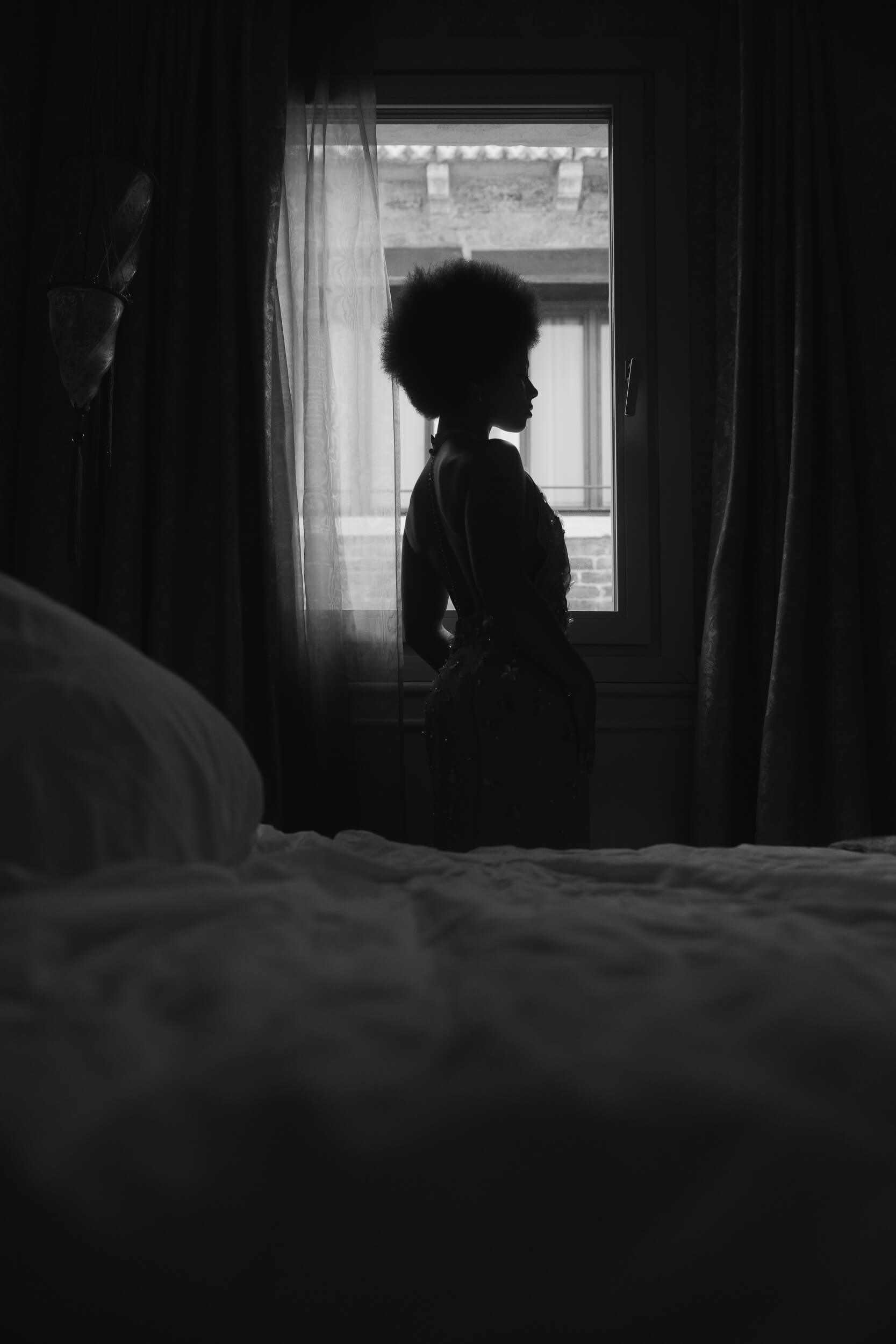
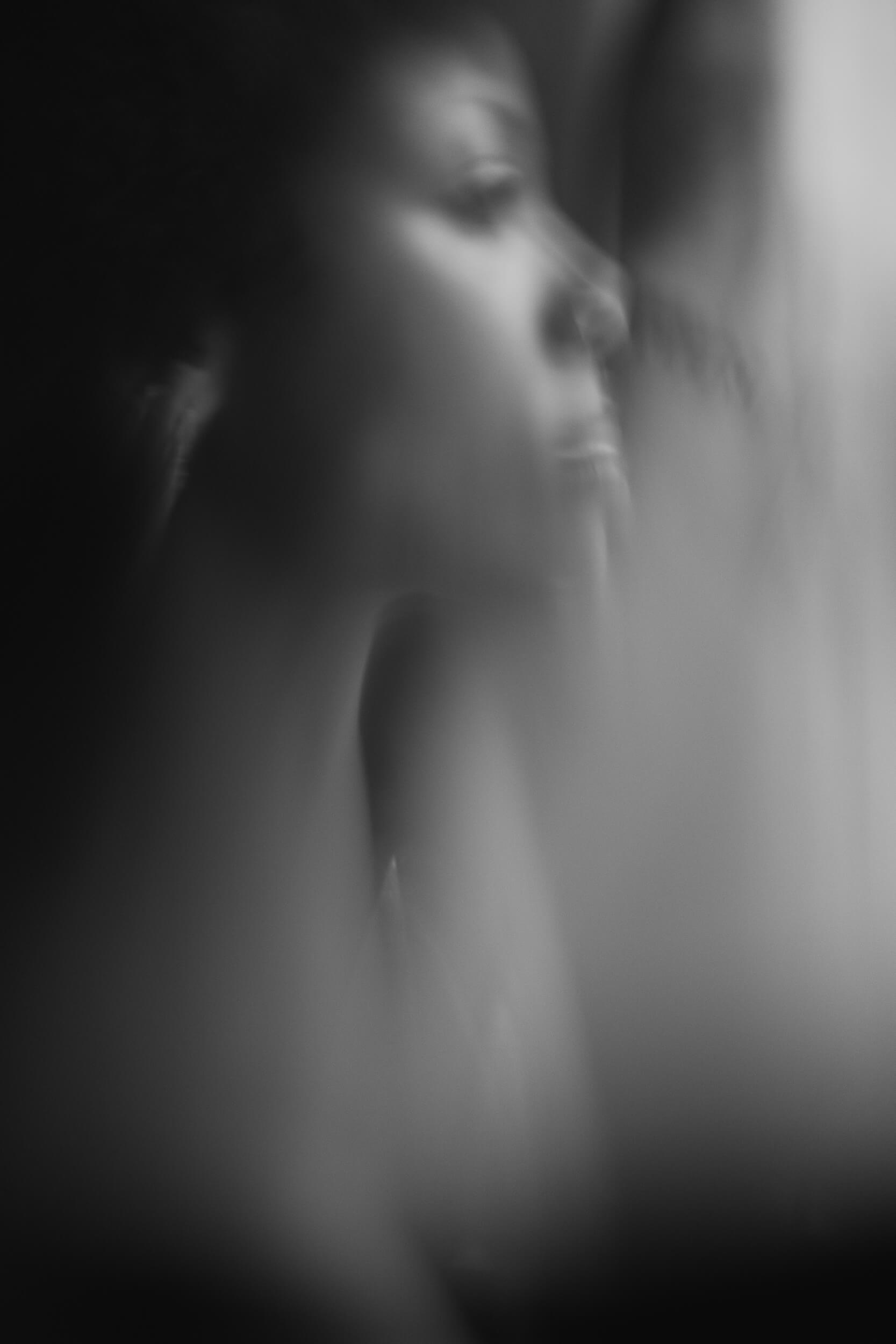
What’s the thing that makes you laugh the most?
I don’t exactly know what it is, but I think it’s just silliness, like, for example, when my partner, my mom and I start laughing, and it’s the kind of laugh that makes you cough after, feel the fluids run in your lungs, do you know what I mean? It’s cringe, it’s being able to laugh at yourself. I laugh very hard at myself all the time, and I think it’s really healthy.
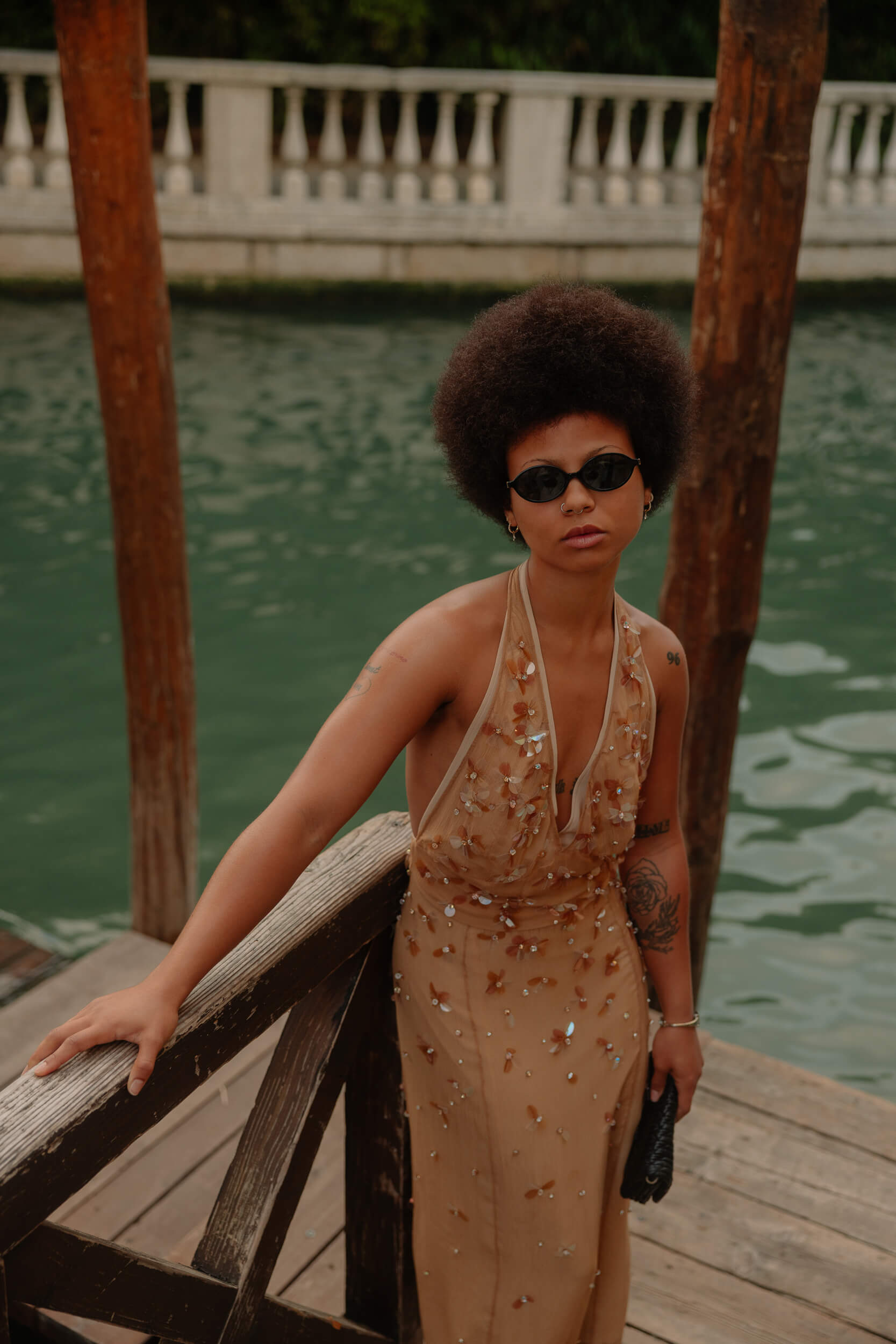
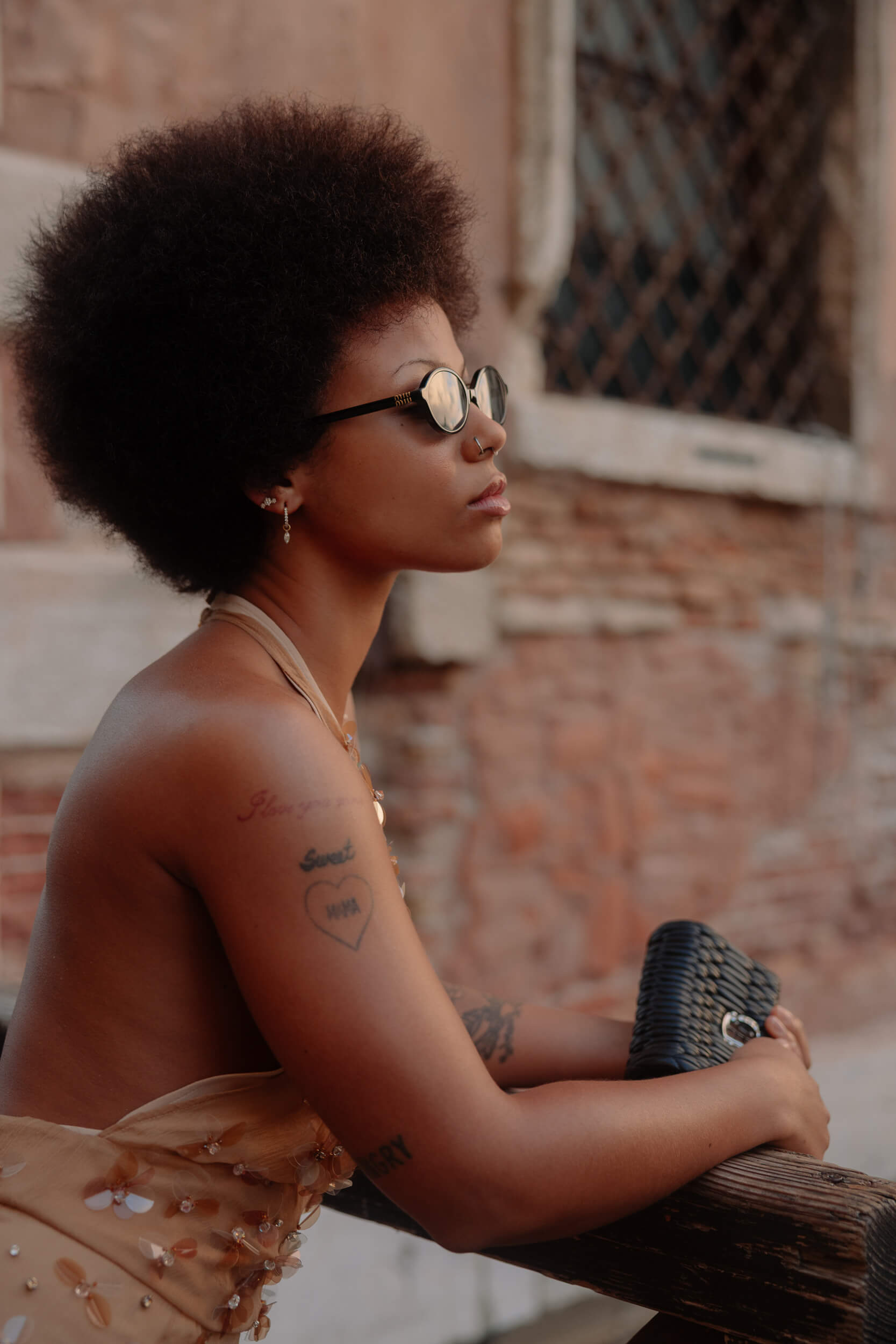
When do you feel the safest and when do you feel the most self-confident?
I feel the safest when I’m with my family, for sure, when I’m with my partner and my mom, usually at home, in my apartment. I make a point to make my space a sanctuary, whatever that means for me, with furniture that inspires beauty in me – I love things that look and feel beautiful, elegant and soft.
I feel the most confident when I get clean, after I take a shower, do my skincare and put my lotion on and my pj’s on. I’m confident because I feel that I look the nicest, the freshest, I’ve done all my self-care stuff, and I know that I’m ready for a very restful time.
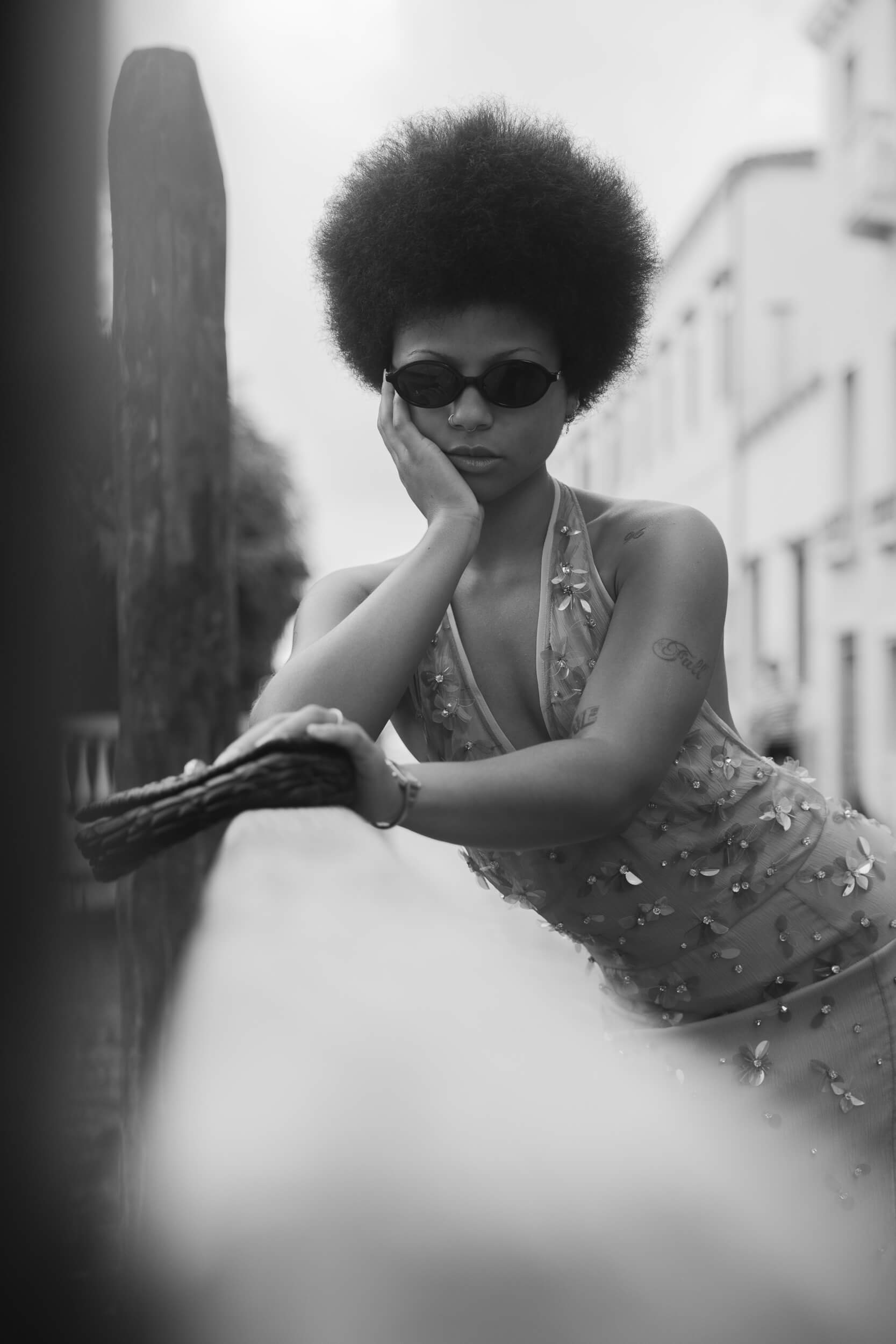
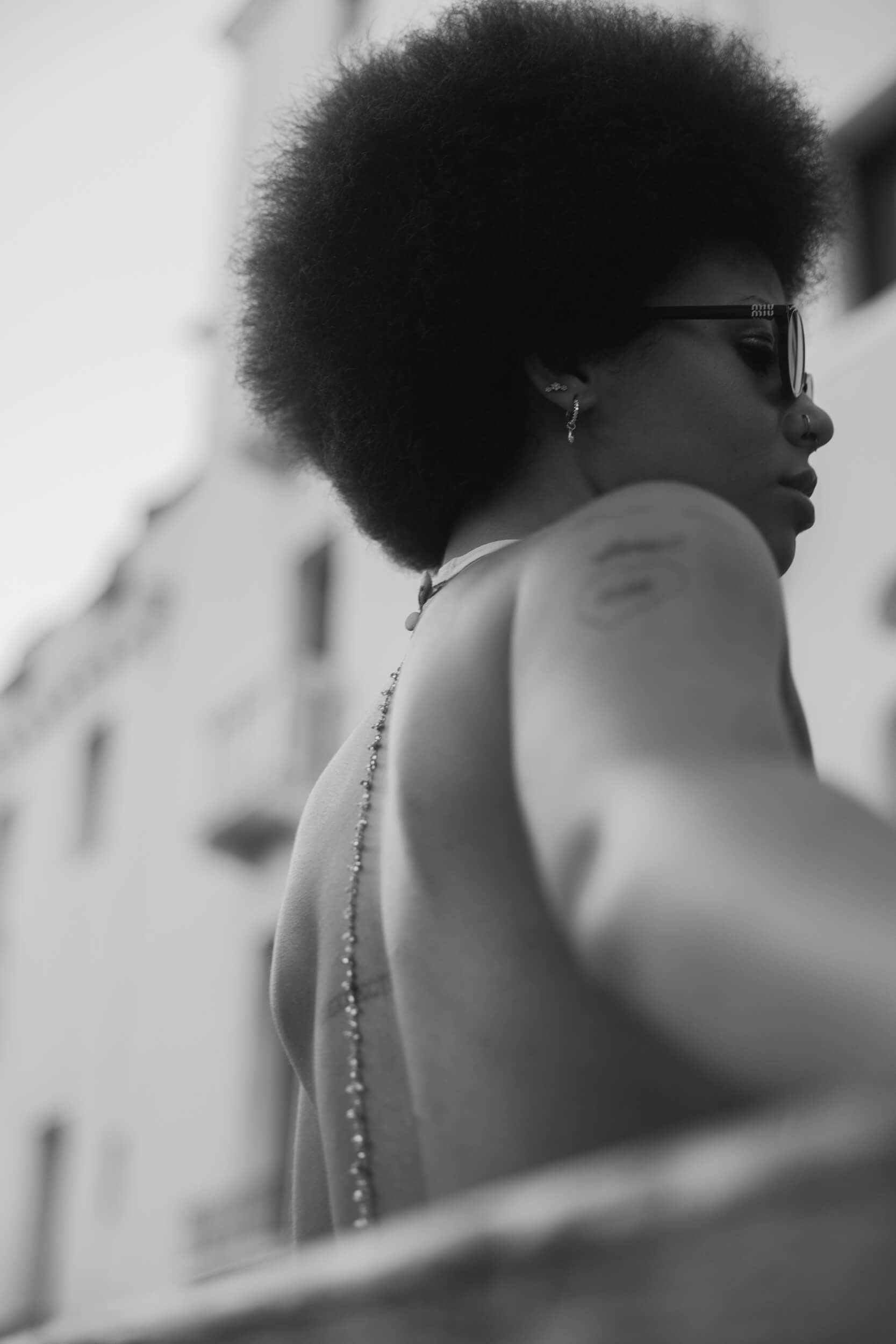
The book on your nightstand right now?
“Astrology of the soul” – I’m not really reading this right now, but it’s always on the coffee table, I pick it up every once in a while.
What was your greatest act of rebellion?
As corny as it is, I’ll say being myself. I think it is truly one of the greatest acts of rebellion, just because as a society, and on a human level, we really want to be liked, which means you want to be like other people. I’ve been very lucky because the environment where I grew up in was very much like, “Do what you want to do, be who you want to be”, so, my greatest act of rebellion has truly been BEING.
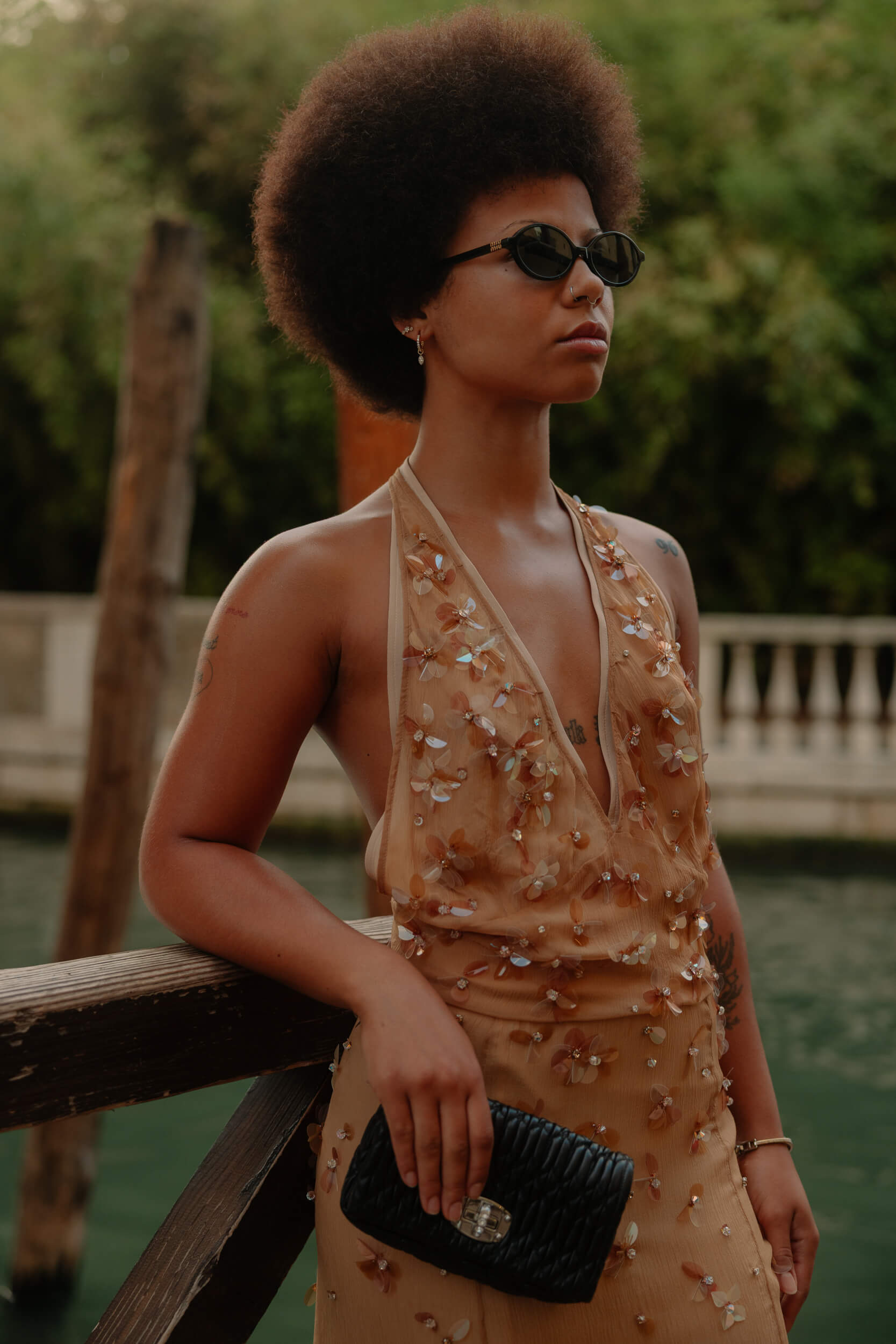
“My greatest act of rebellion has truly been BEING”
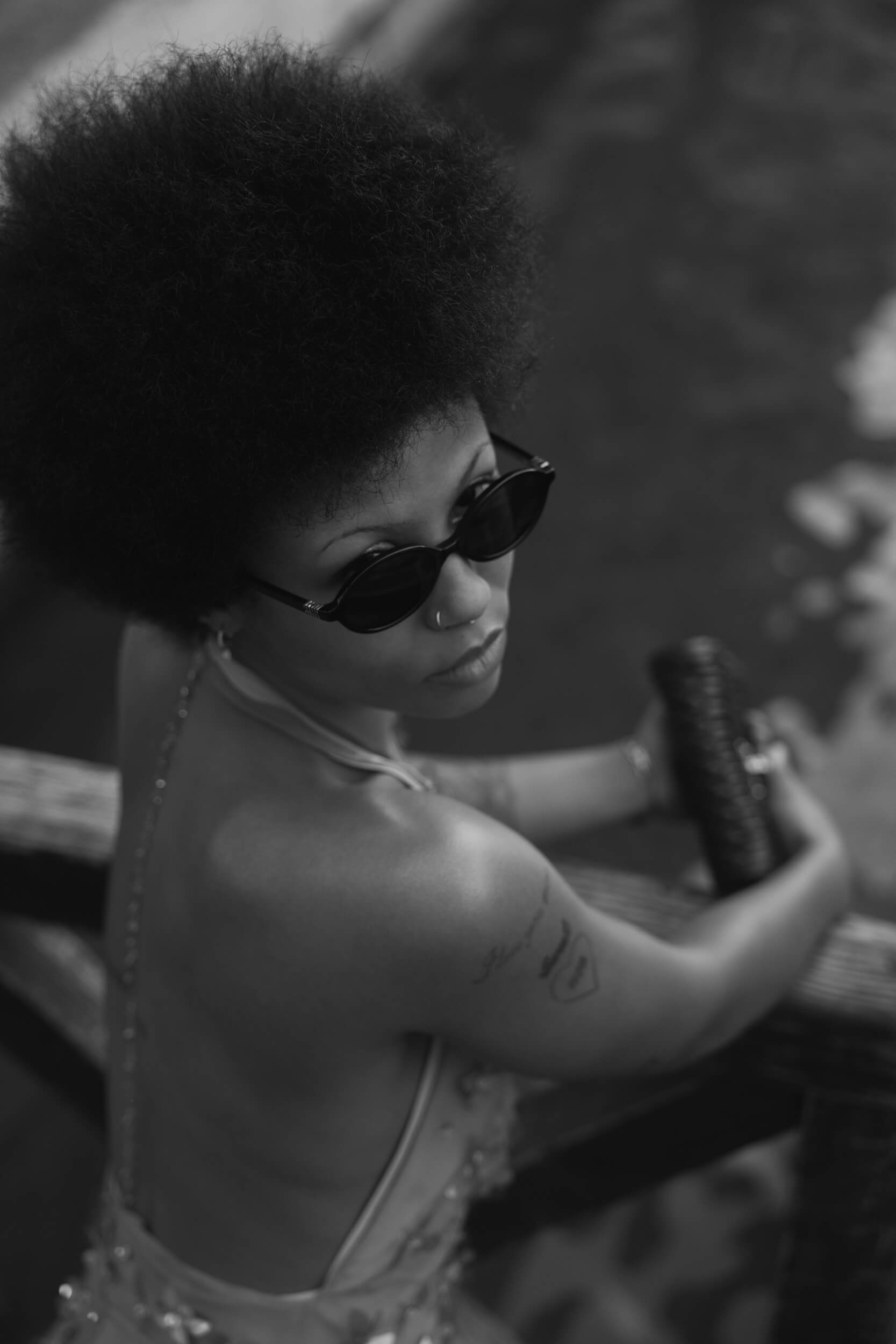
What’s your biggest fear?
I’m not too afraid of much. I feel like living in fear is a waste of energy. But if I’m being really honest, my fear is probably untapped potential. I’m pretty obsessed with being my personal best by eating really well, exercising, making sure I’m seeing daylight as the first thing in the morning, being the best daughter I can be, the best partner I can be, the best cat mom I can be, the best interviewee I can be. One of the greatest things about me, but also one of my greatest pitfalls, is that I’m a perfectionist. I’m always trying to reach for new heights.
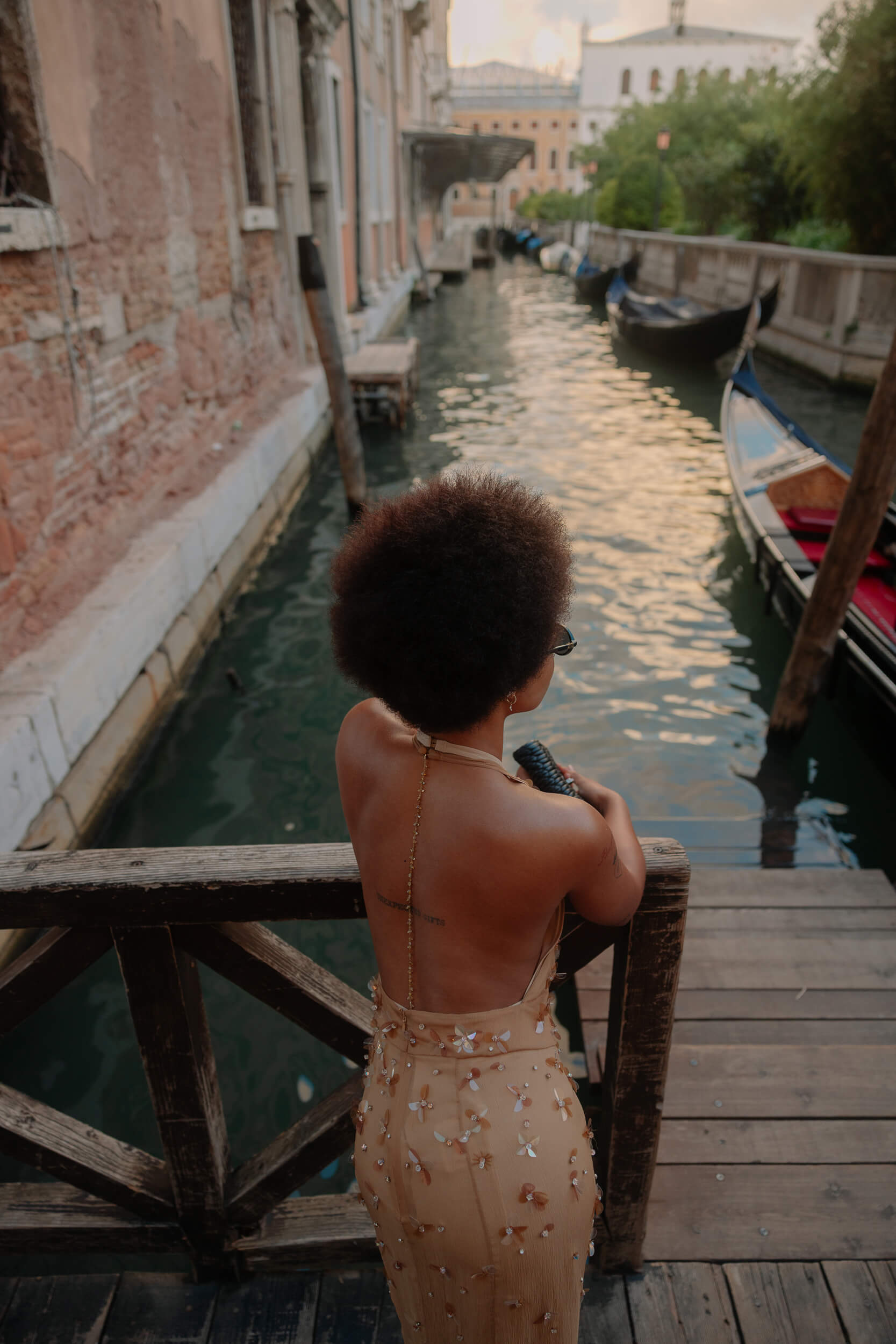
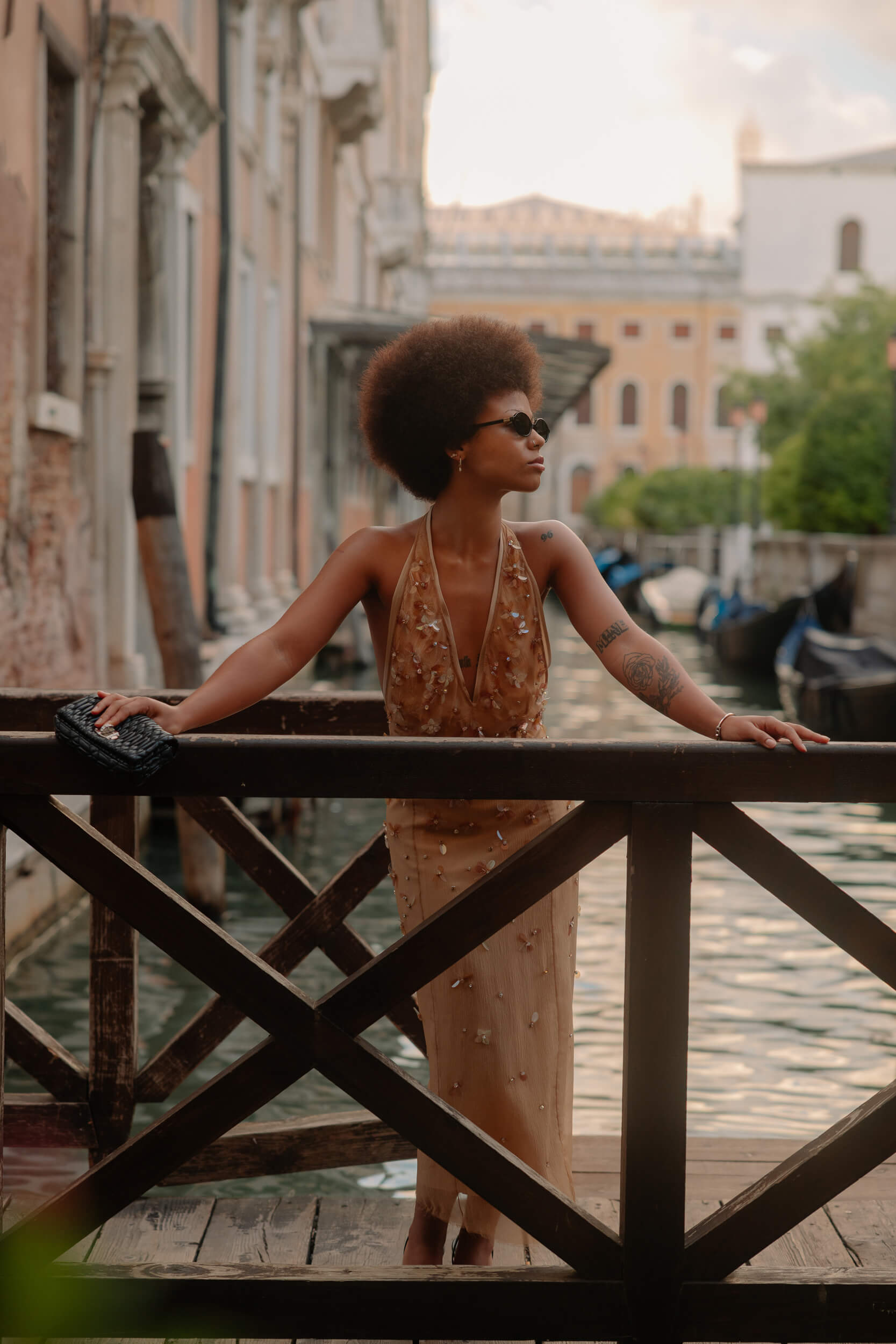
What does it mean to you to feel comfortable in your own skin?
It means not worrying about what anyone else thinks about me, which I think is a full-time job, not worrying about what other people think or say, especially as a person in the public eye, but also even if you have social media. I put on different hats, I act like other people, which leads me up to criticism for what my characters do, for their sins.
So, being comfortable in your skin is not caring, not letting that affect how you live your life.
What is home to you?
My family, wherever they are.
What’s your happy place?
Again, my family, but more specifically, my apartment, my cats, and all my stuff, I really like my stuff. My apartment is my favorite place.
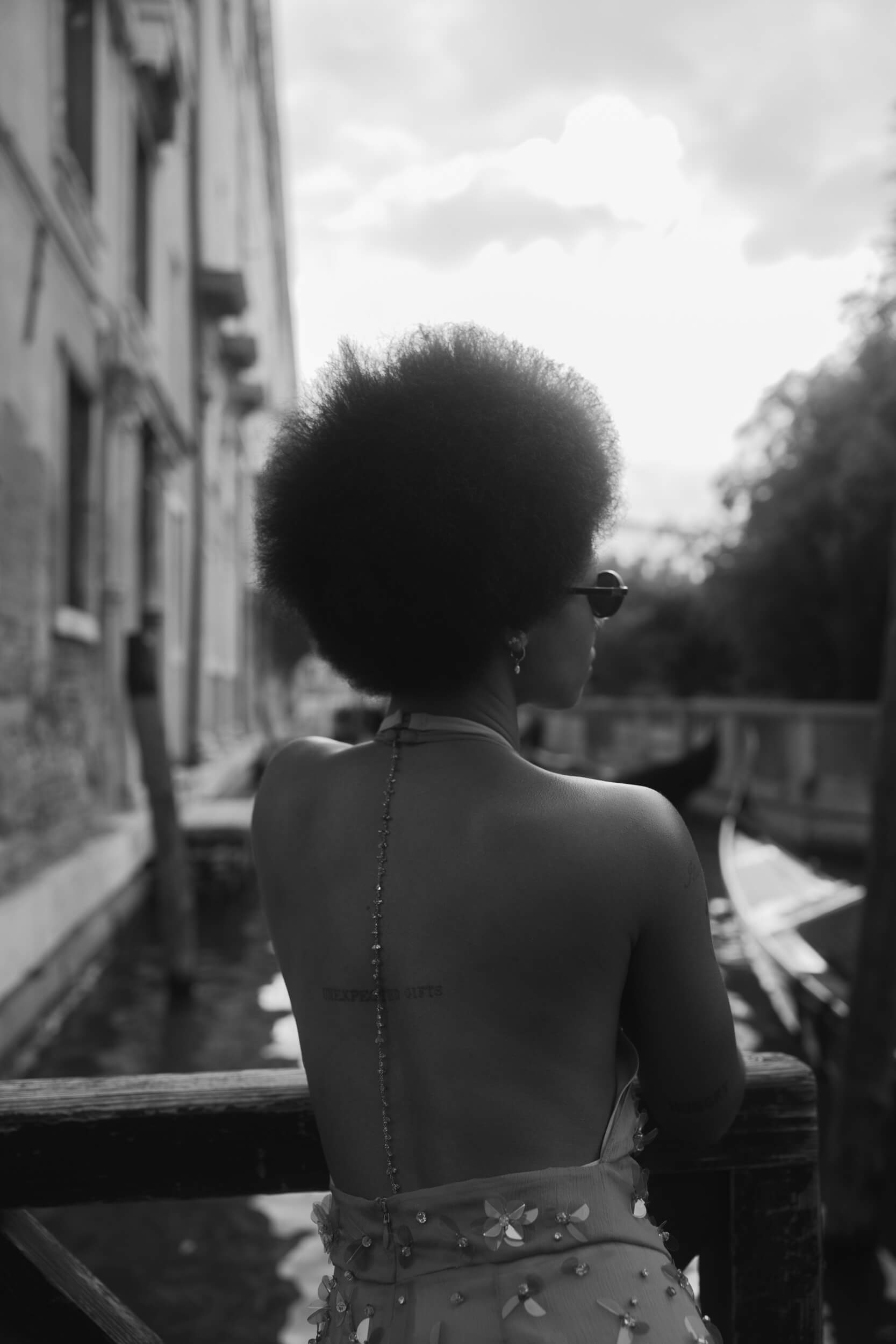
Photos & Video by Johnny Carrano.
Makeup by Bea Sweet.
Styling by Miu Miu.
Location: Baglioni Hotel Luna.

